We are f*****, the presentation
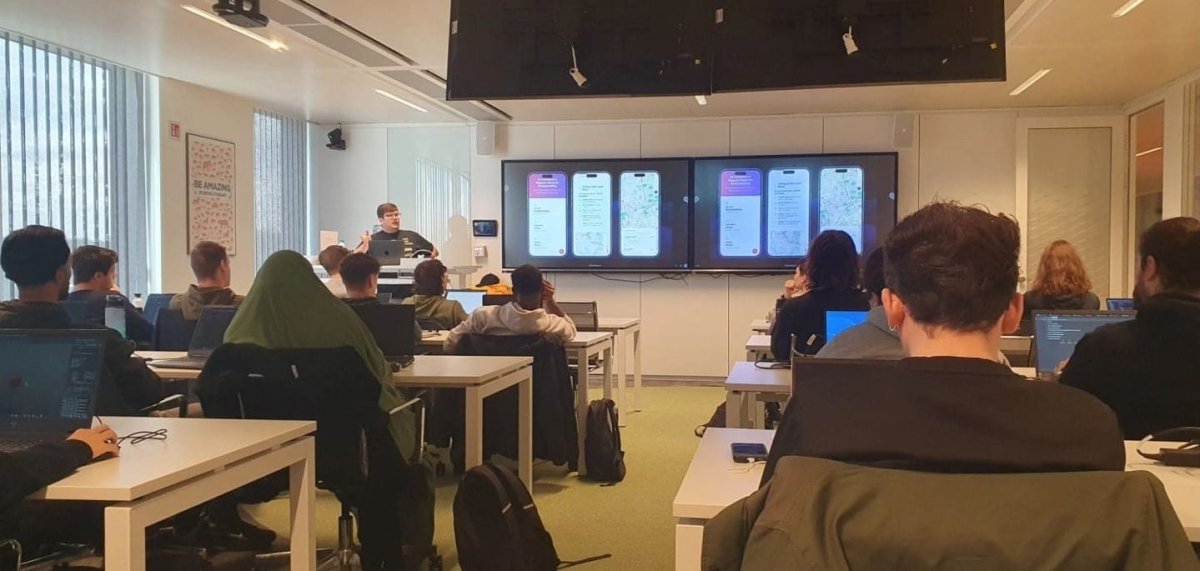
After writing the blog post "We are fucked" and some other half-assed thoughts on AI and coding I was asked by the PXL college to give a presentation to students software engineering (specialisation AI).
This gave me a lot of anxiety, because of instant imposter syndrome and the fear that the students would just know everything I'd tell them already. But in the end, I think the presentation went well (except racing through it too fast - like I always do when doing public speaking). There were some good questions at the end as well about using LLMs and the future of the sofware engineer when models get even better.
Some folks asked if there's a recording. I am very glad there isn't. But here are my slides and some very crude presentator notes.
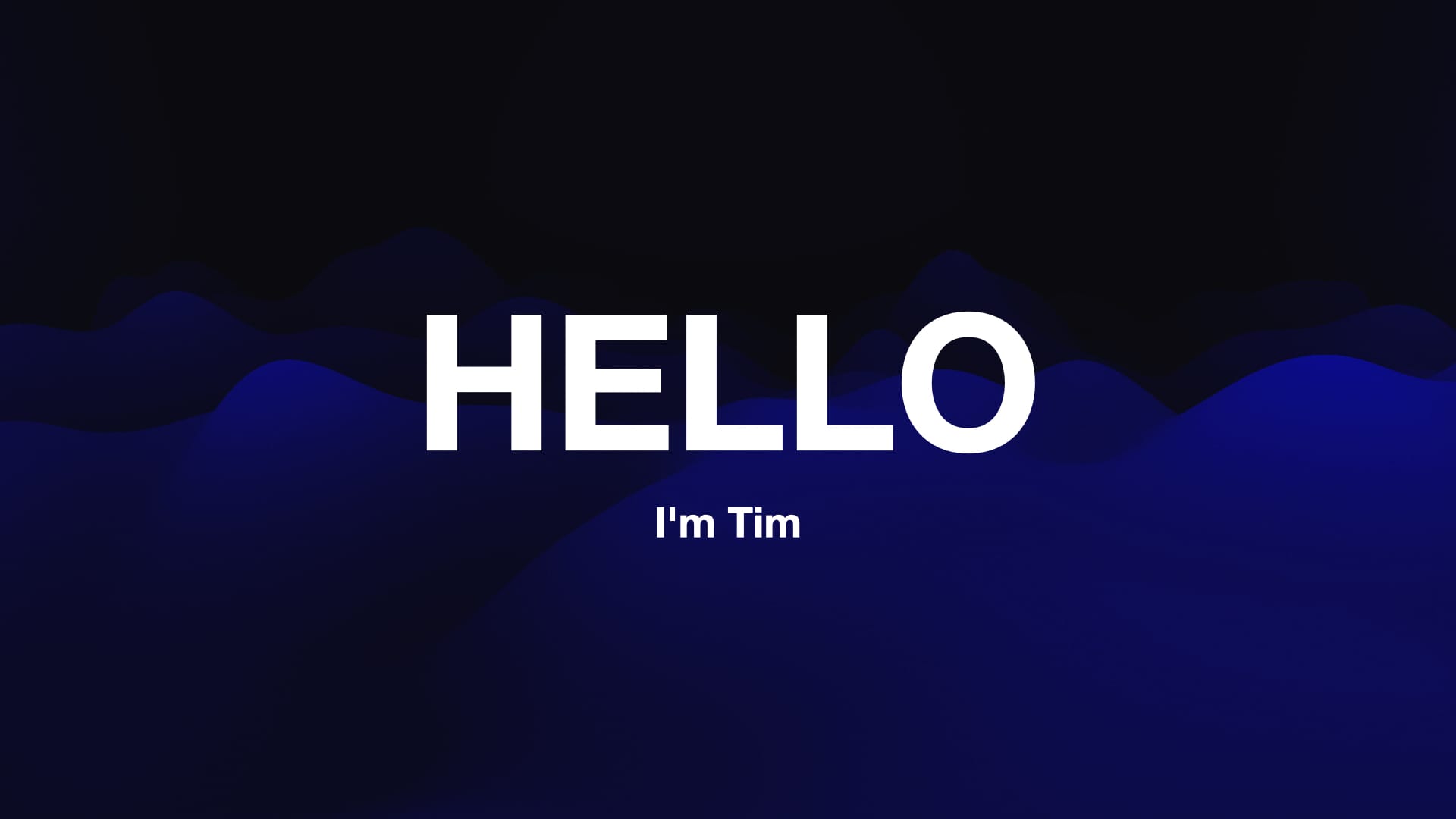
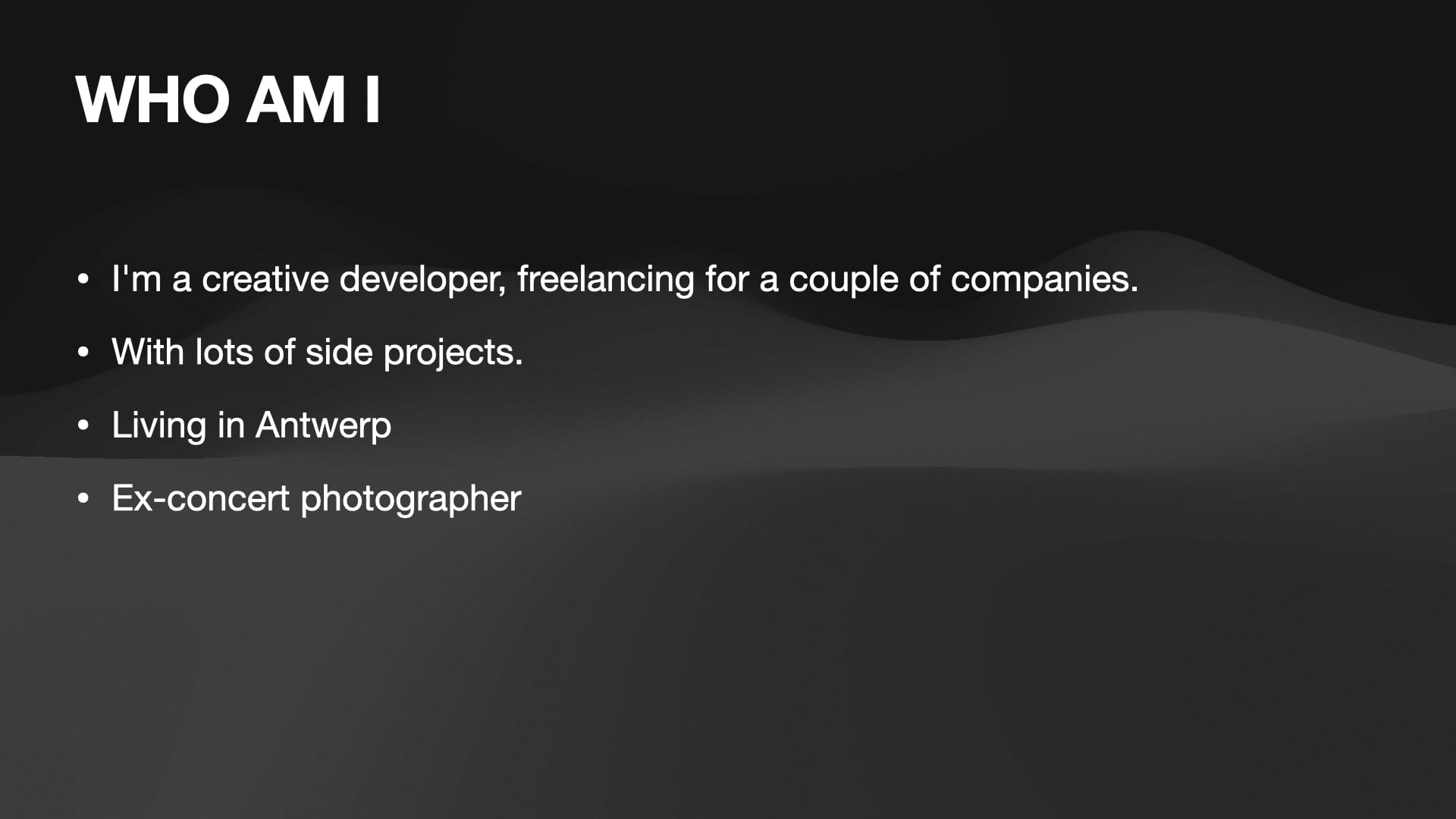
Let me quickly introduce myself.
I'm Tim and I'm a creative developer. I have my own company which is called Titans of Industry, because having a bombastic name always does the trick.
I freelance for a couple of clients. One of them is Vectrix, a startup in AI logistics. I do full stack work for them.
Most of all I like building stuff, which some may call side projects.
I live in Antwerp, but unless most of the people there I don't like talking about myself too much. I'm going to talk to you about how I use generative AI in my daily work. I don't have all the answers myself, but I'm going to tell a few stories.
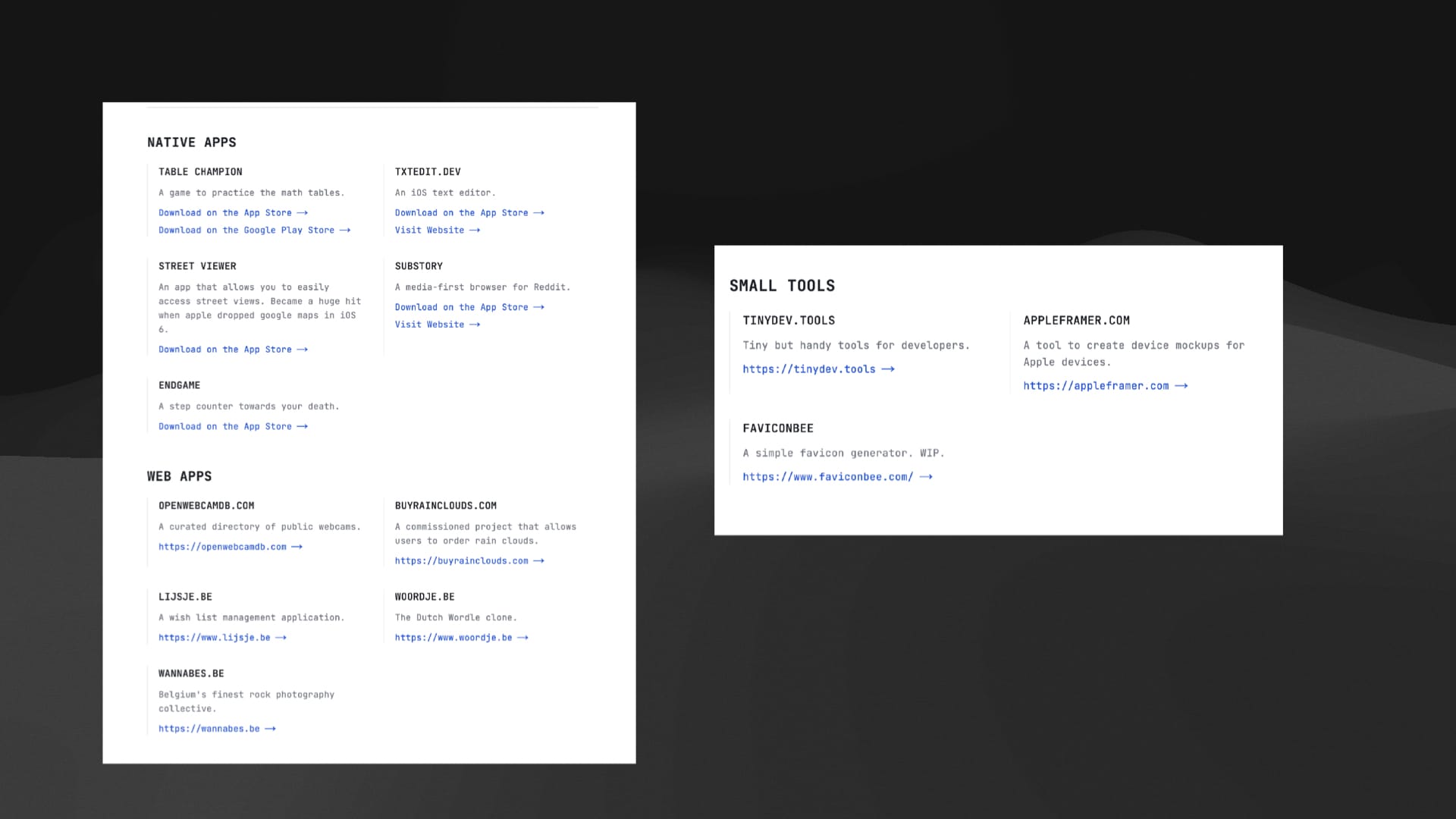
When I feel an itch I build it.
One of my projects is a step counter that shows you how many steps you have left until you die.
For one of my other projects I couldn't find a public API of live webcams, so I built it.
I also created an app for my daughter to practice her math tables. For a friend I made a website where you can order a rain shower, as a gift for someone.
And a Reddit browser that skips the text and just shows images. I made it to browse memes, but apparantly the biggest use case for people who download it is browsing "other" content.
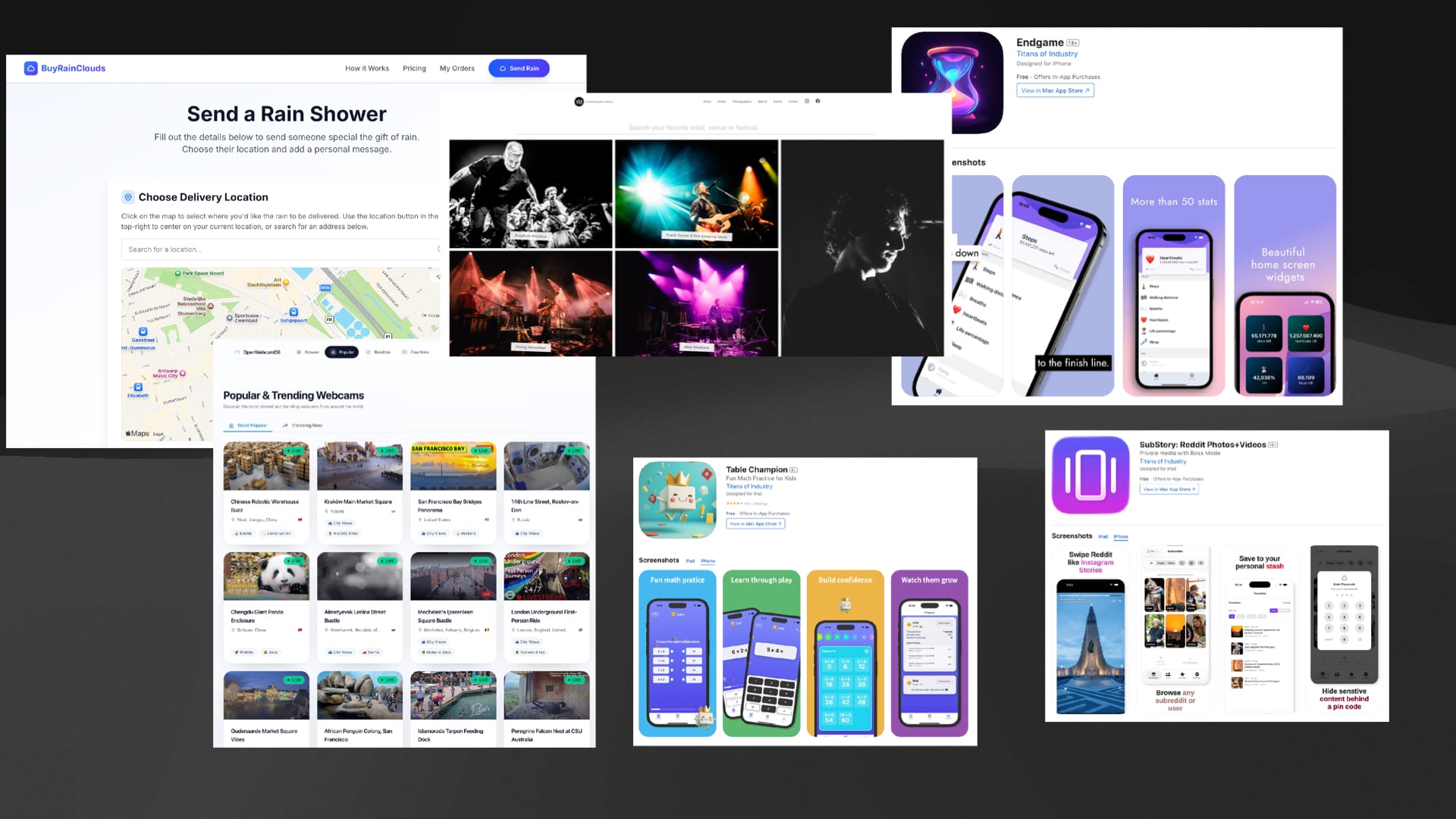
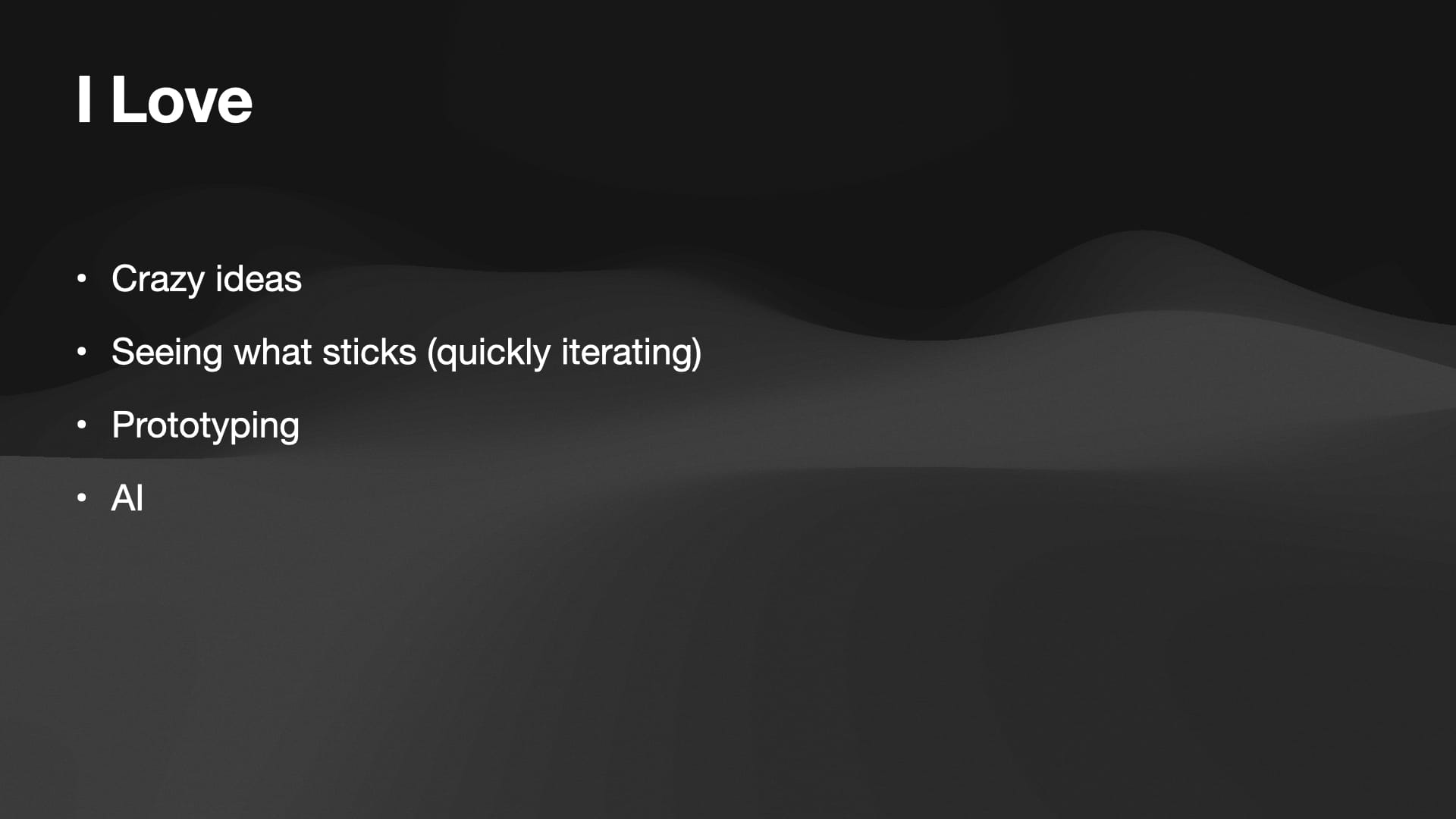
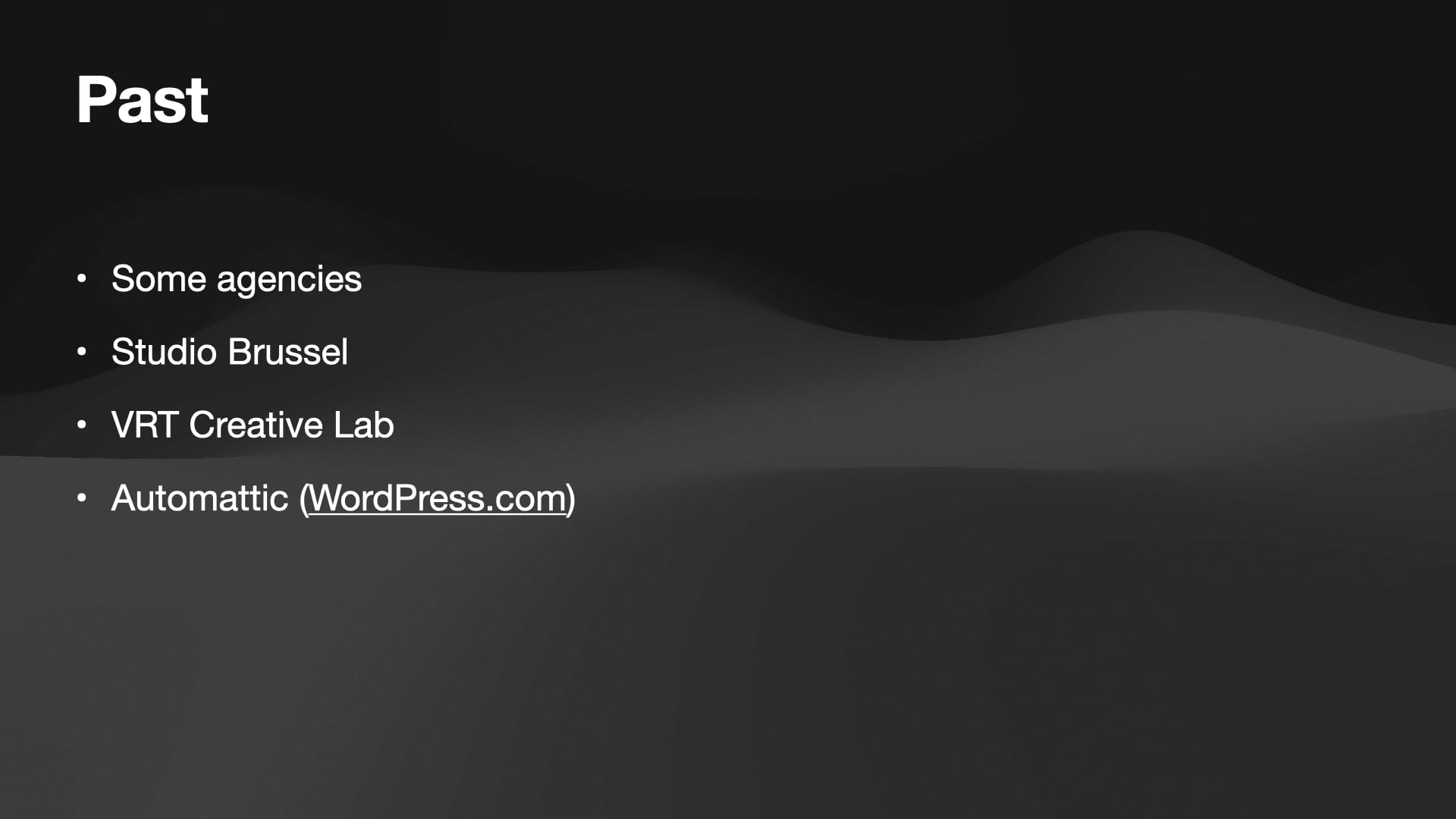
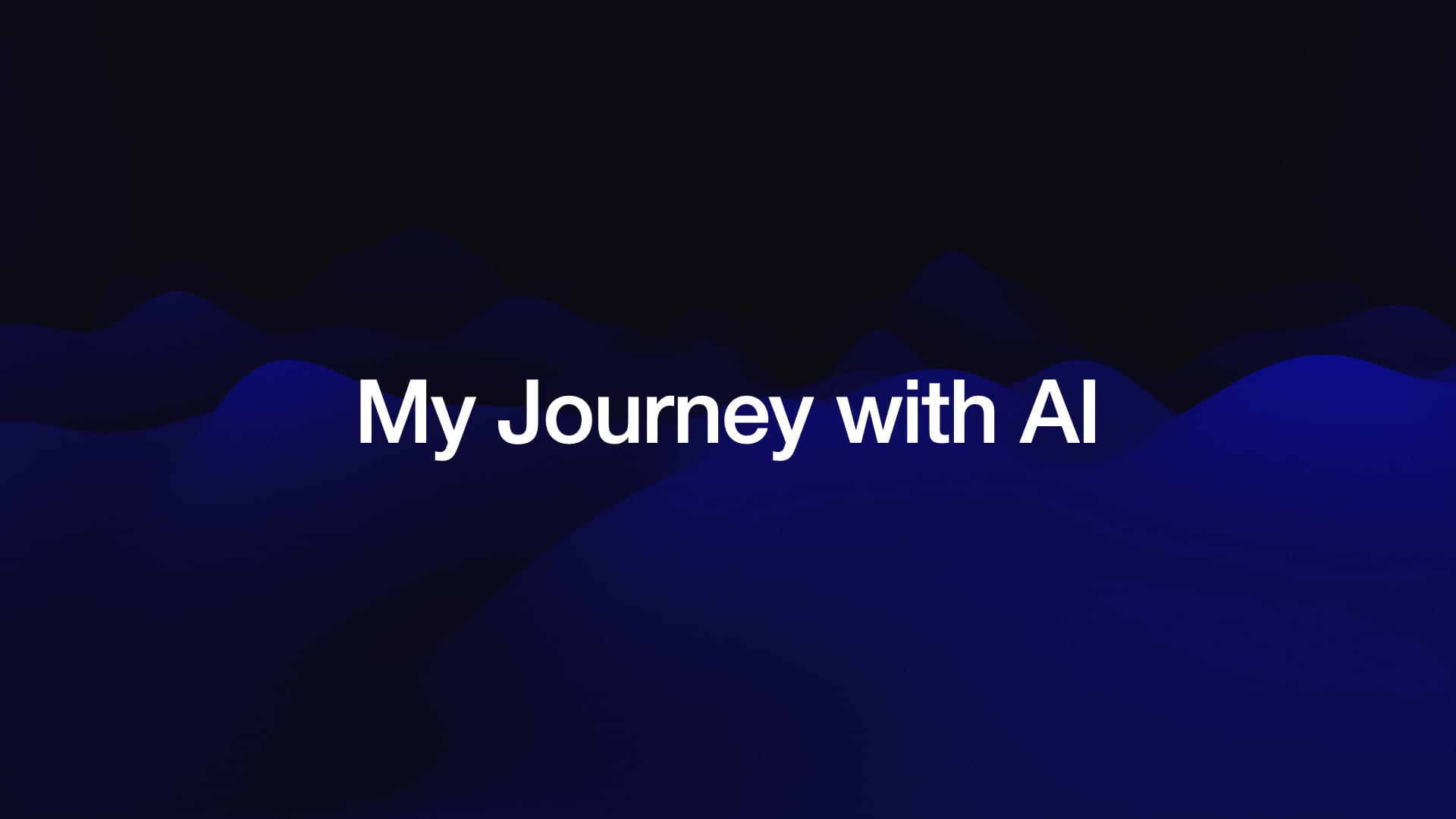
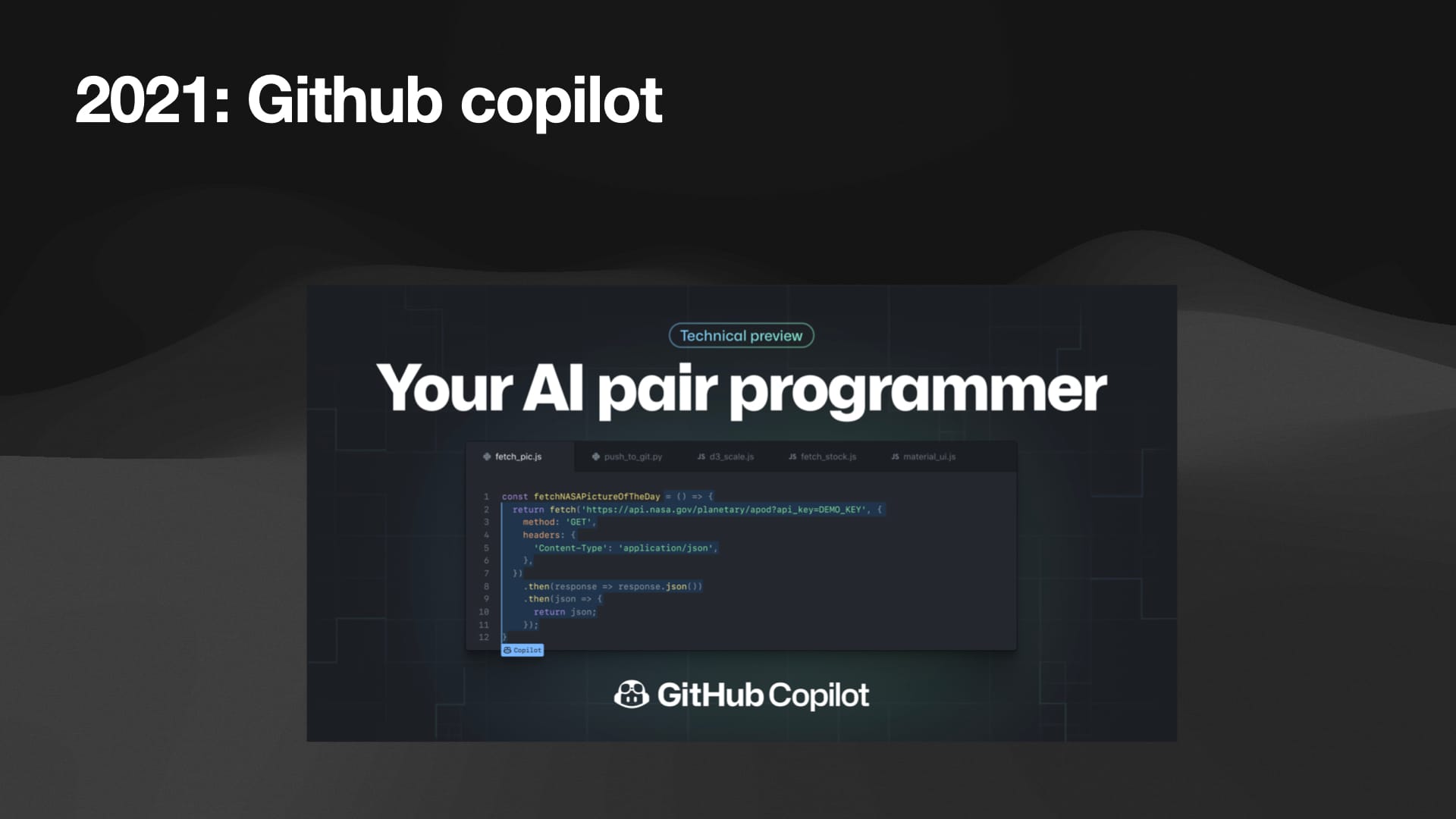
I've been using code assistance since the very beginning. I still remember the day Github announced Copilot and it changed everything.
It couldn't do much, it could autocomplete your line, sometimes when you were very lucky it could write a generic function.
It had almost zero context on your code and if you were to try that version today it would slow you down.
But it was progress, it was shiny and it was amazing that a computer could do this for you.
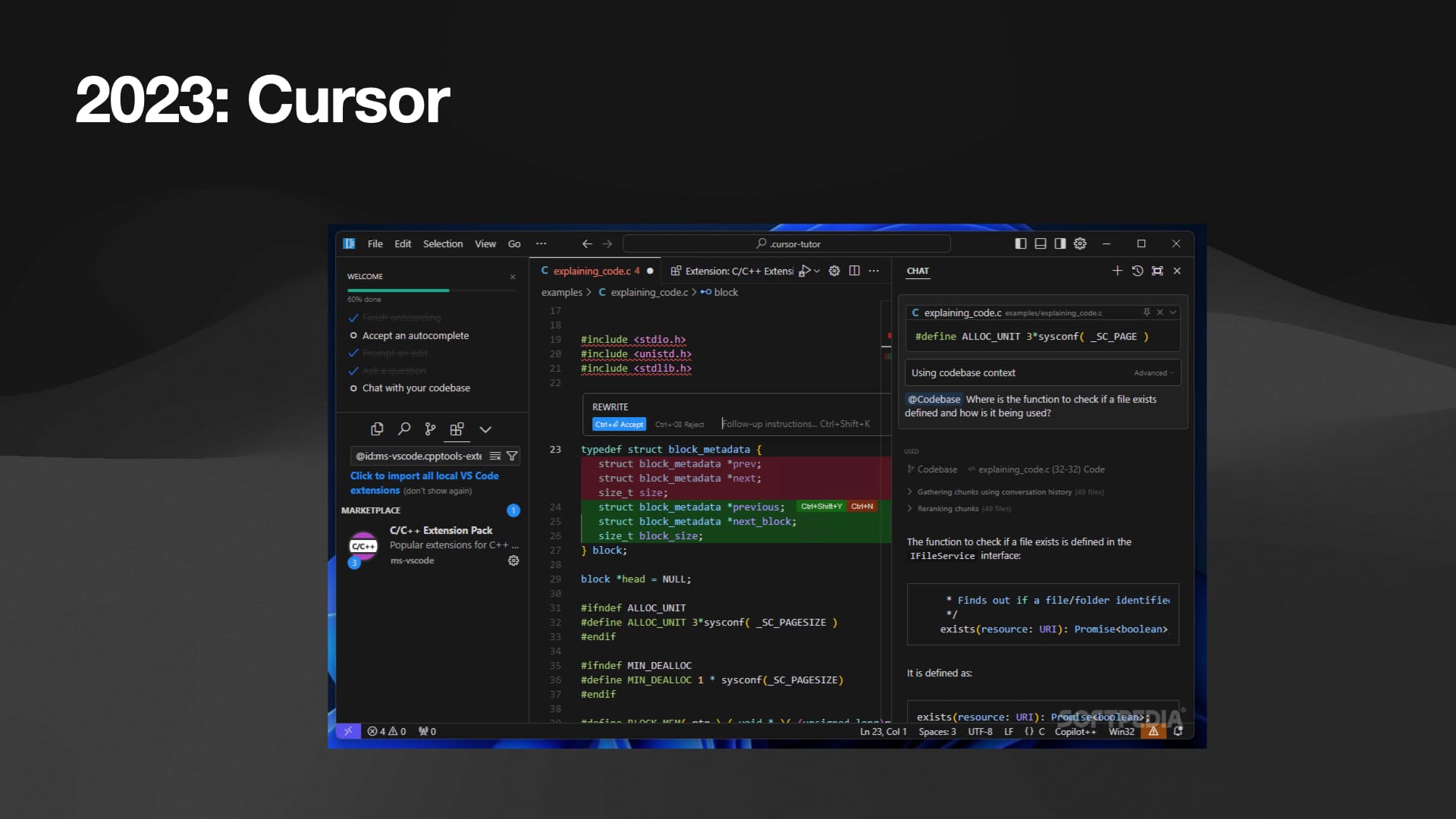
Then came Cursor, which added context and most importantly: a chat interface.
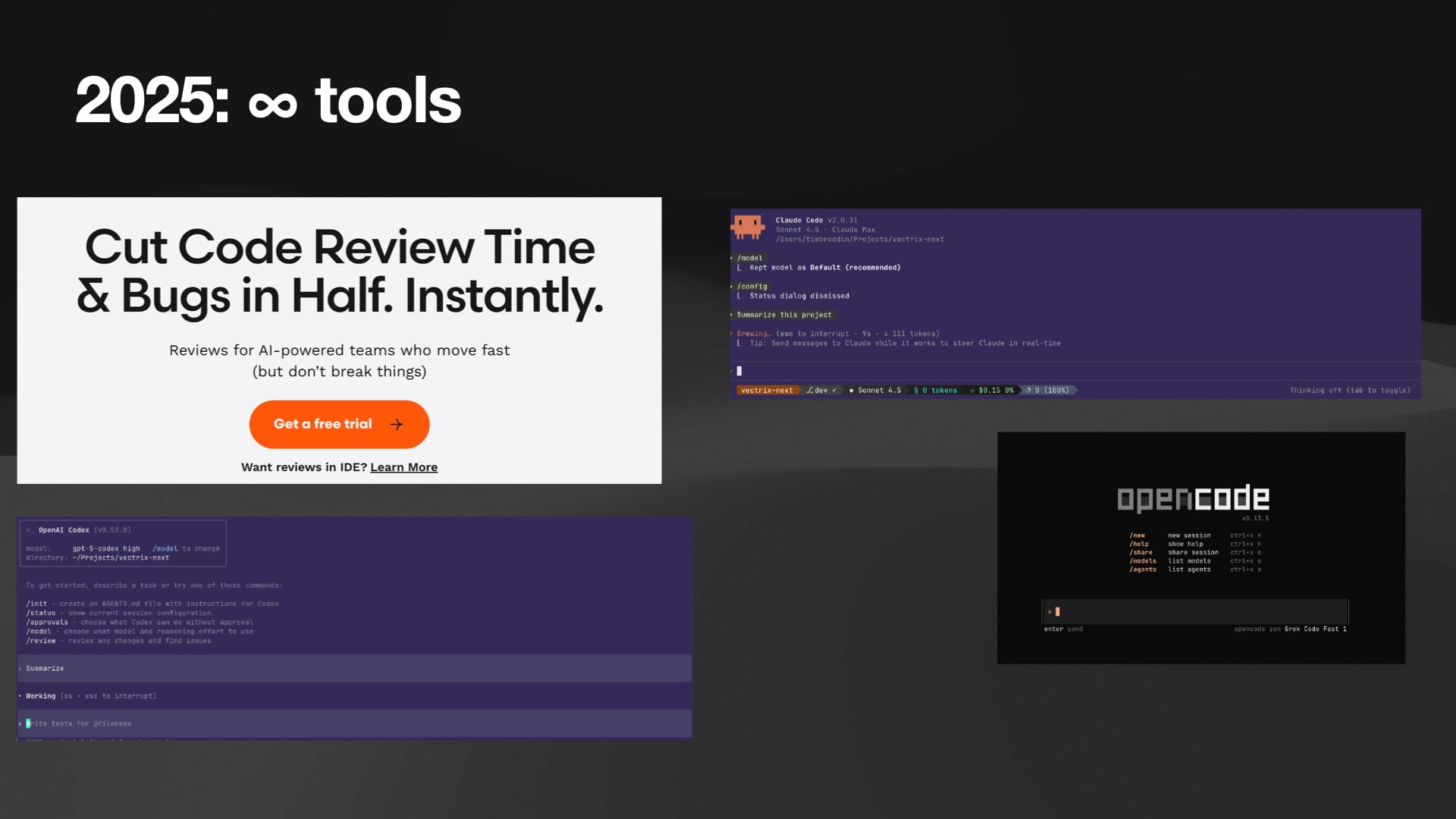
And now there are so many tools available. And they've gotten so good.
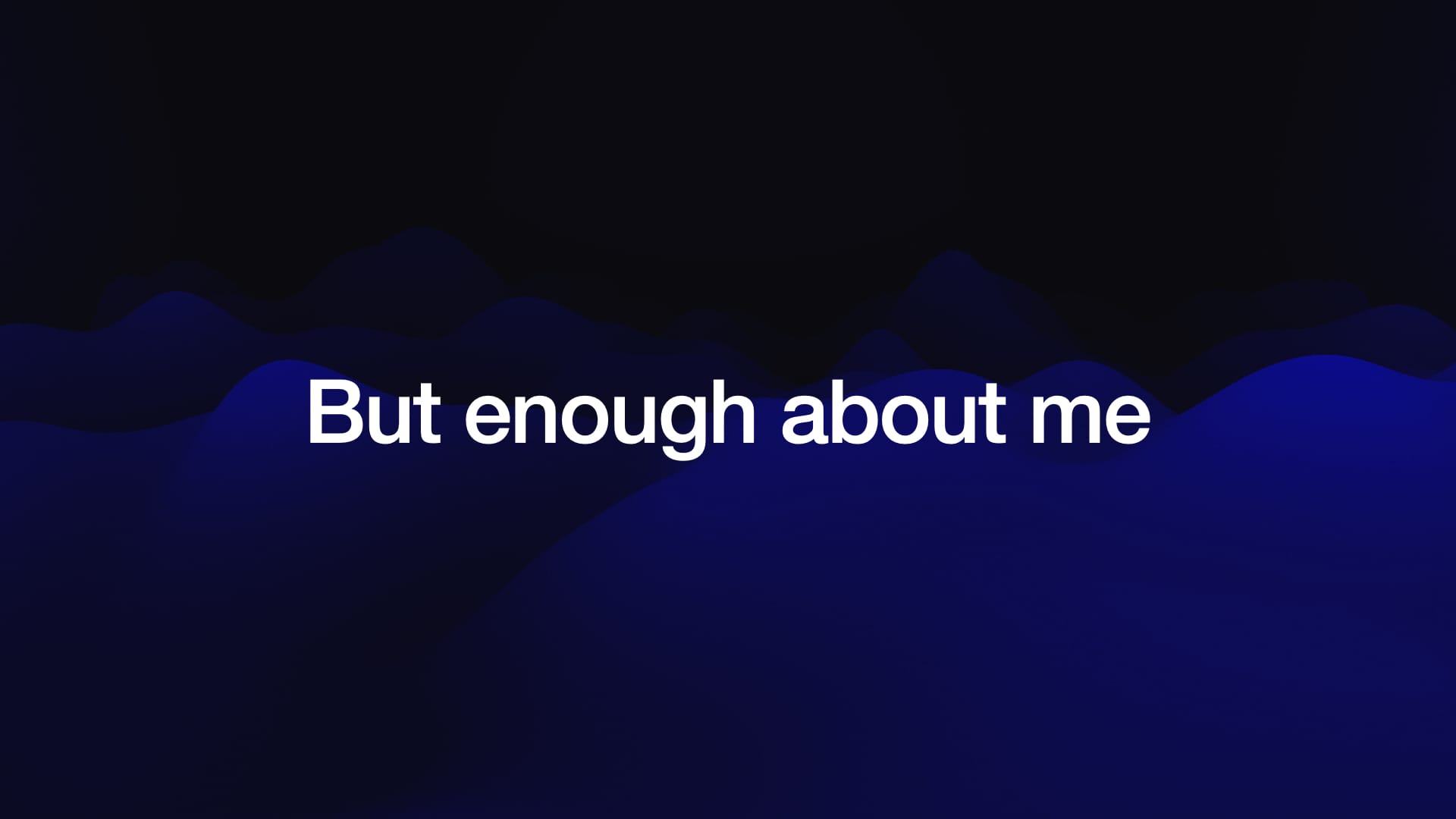
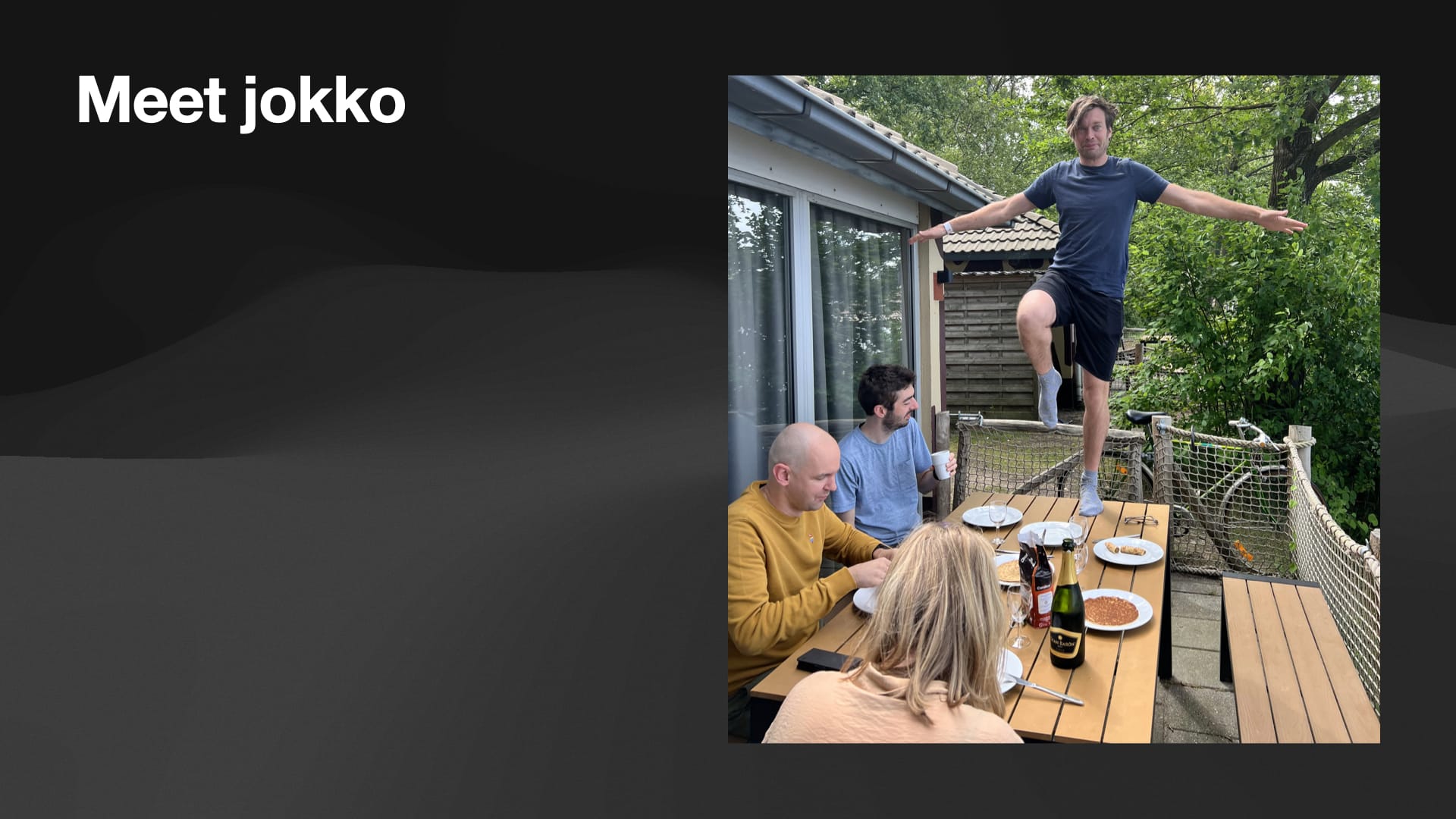
This is Jokko, a good friend of mine. He's an event photographer.
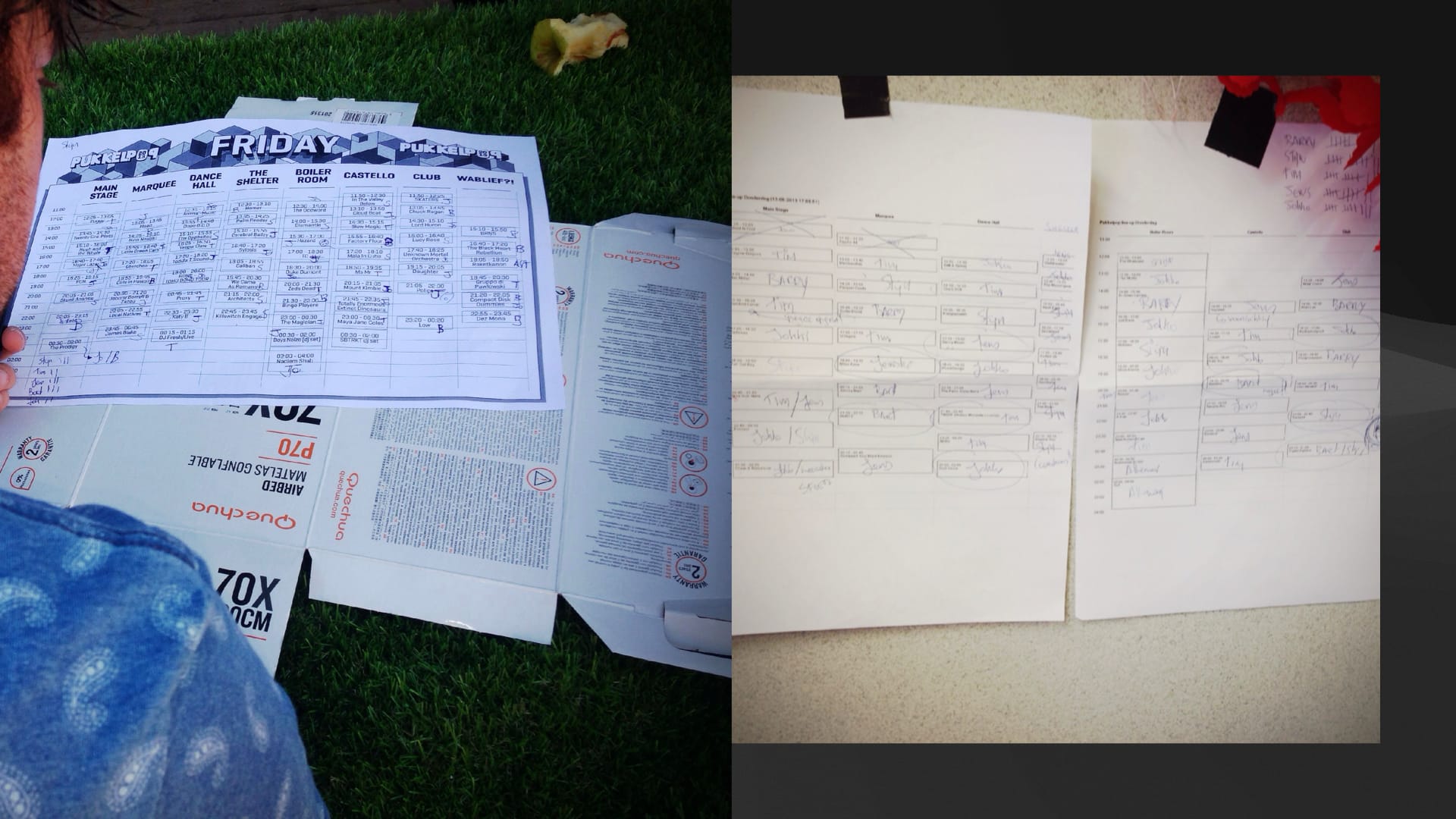
He's also in charge of the phototeam at Pukkelpop. And planning who will do which concert is a nightmare.
I used to be a concert photographer too, and I remember us sitting around a printed timetable each morning. It was a chore.
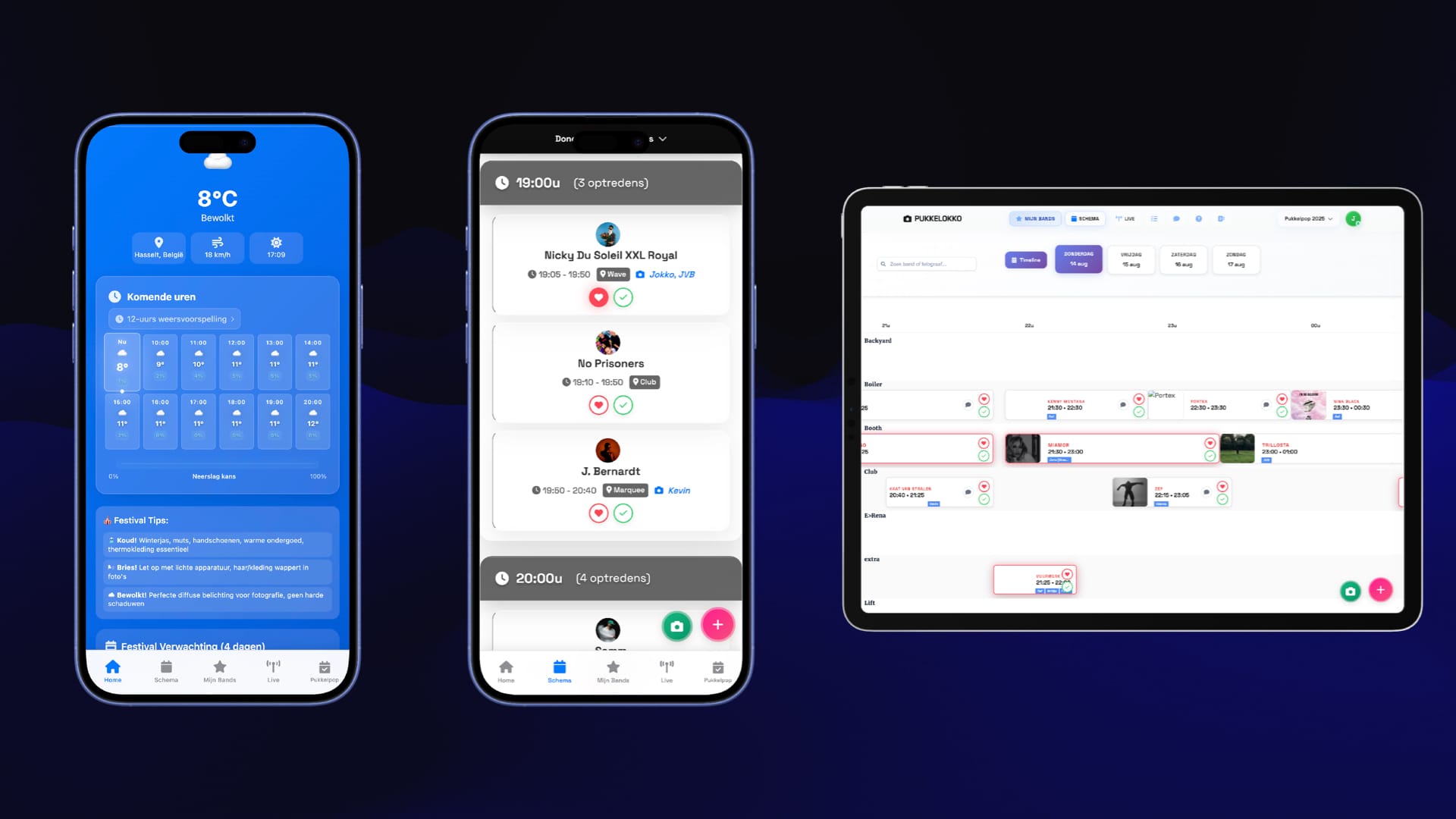
Jokko doesn't know how to code. Yet, last year he started writing code.
First just by asking ChatGPT for code and copy pasting it.
Then he started using Cursor.
And step by step he made a whole planning system for Pukkelpop.
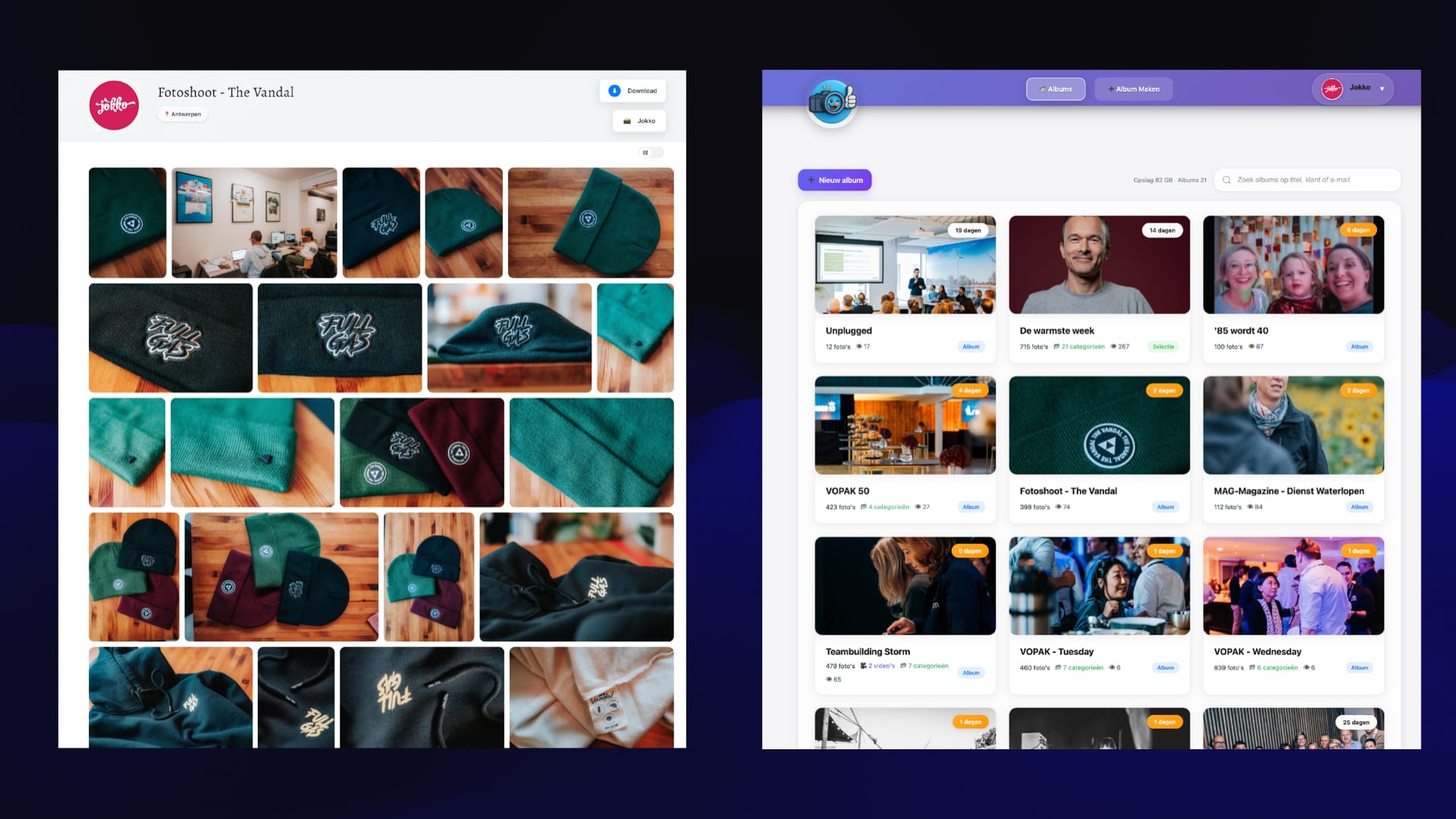
And because he was on a roll, he also made a photo management system to cater his clients.
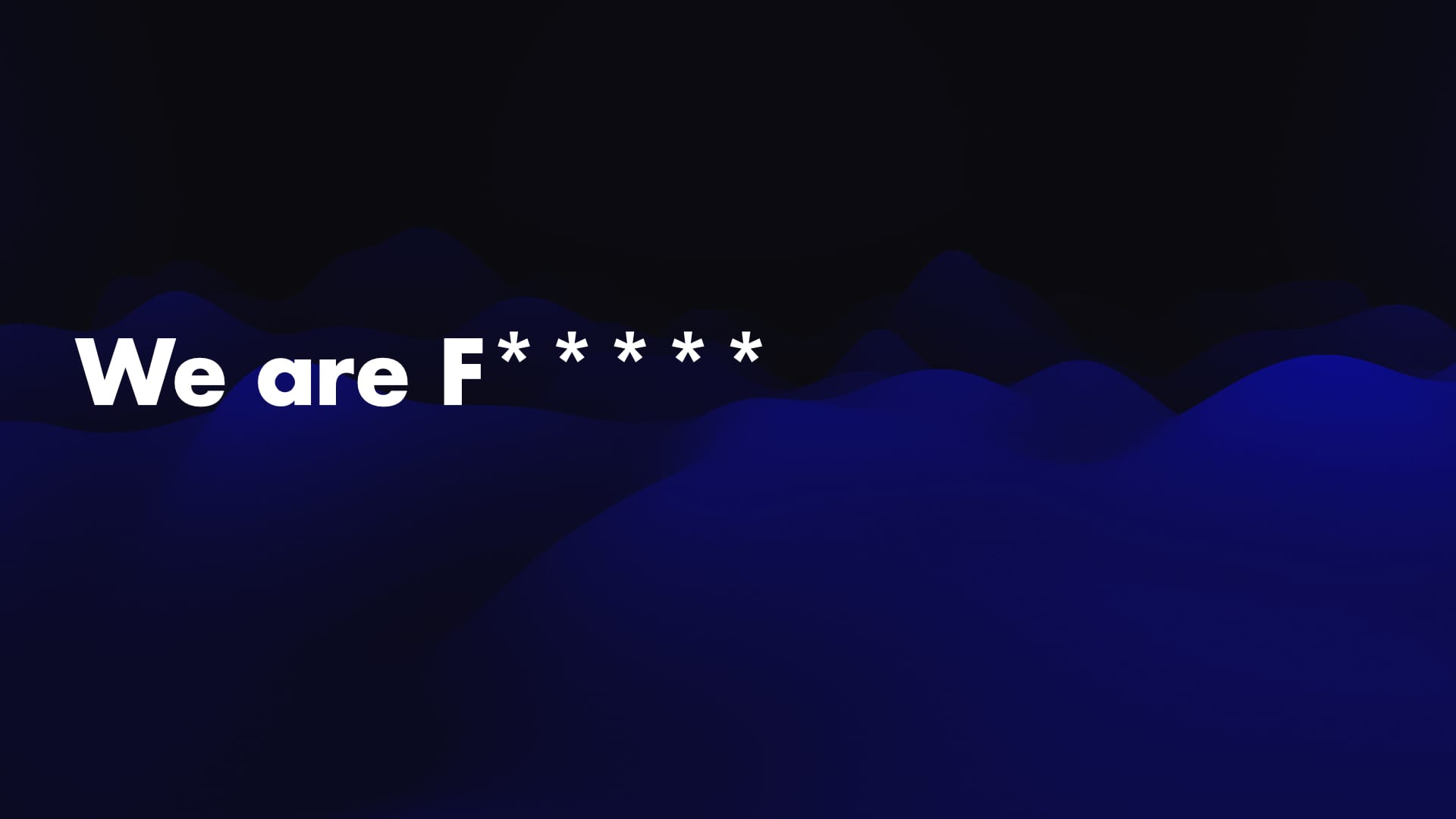
He showed my all this progress. Sending me screenshots daily.
And I kept cheering him. Because what he made is awesome work.
But I also started realizing that we, as software engineers, are screwed. And to be honest, I felt pretty bad for you guys as well. Because entering a job market where everyone can code is hard.
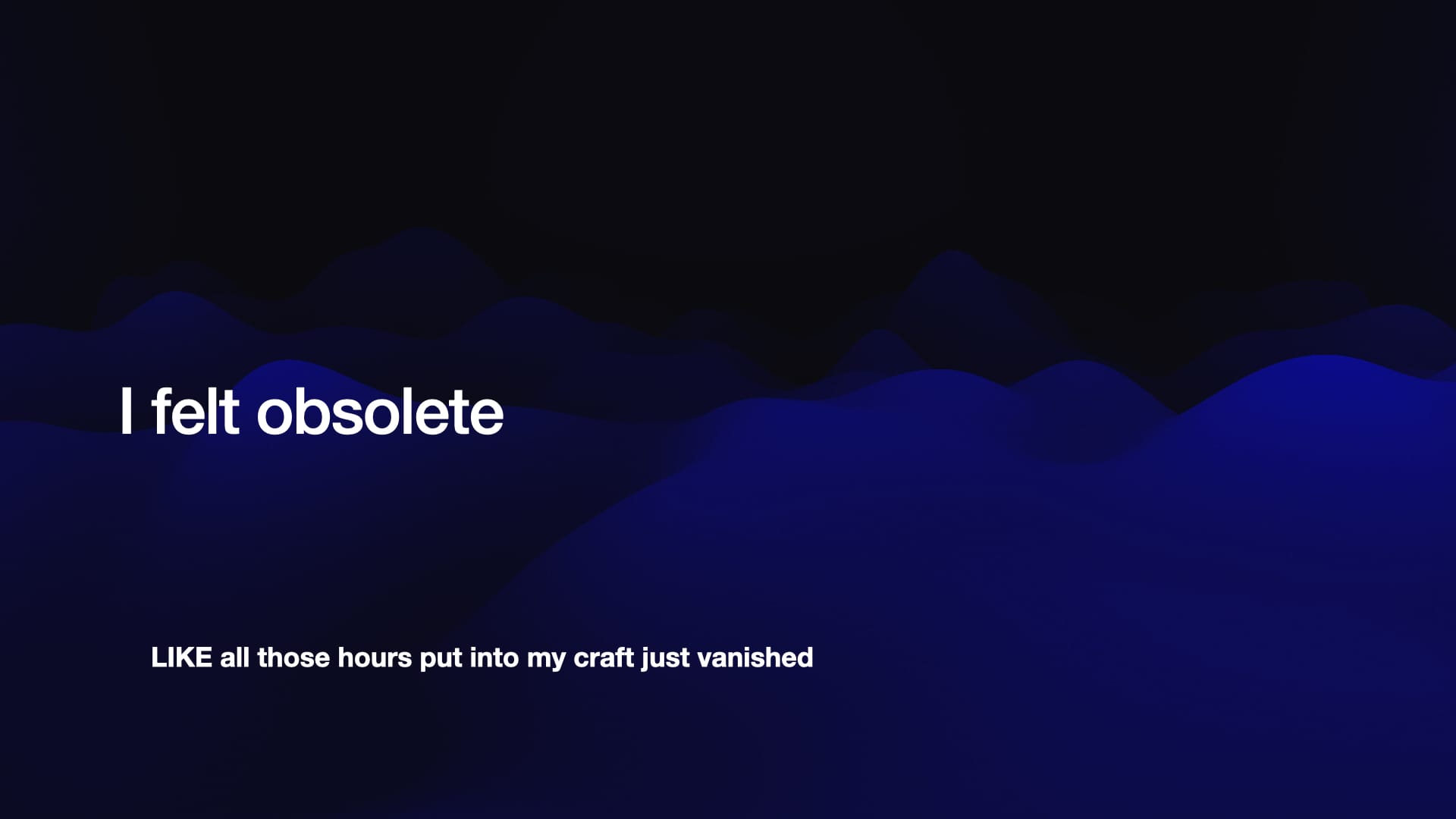
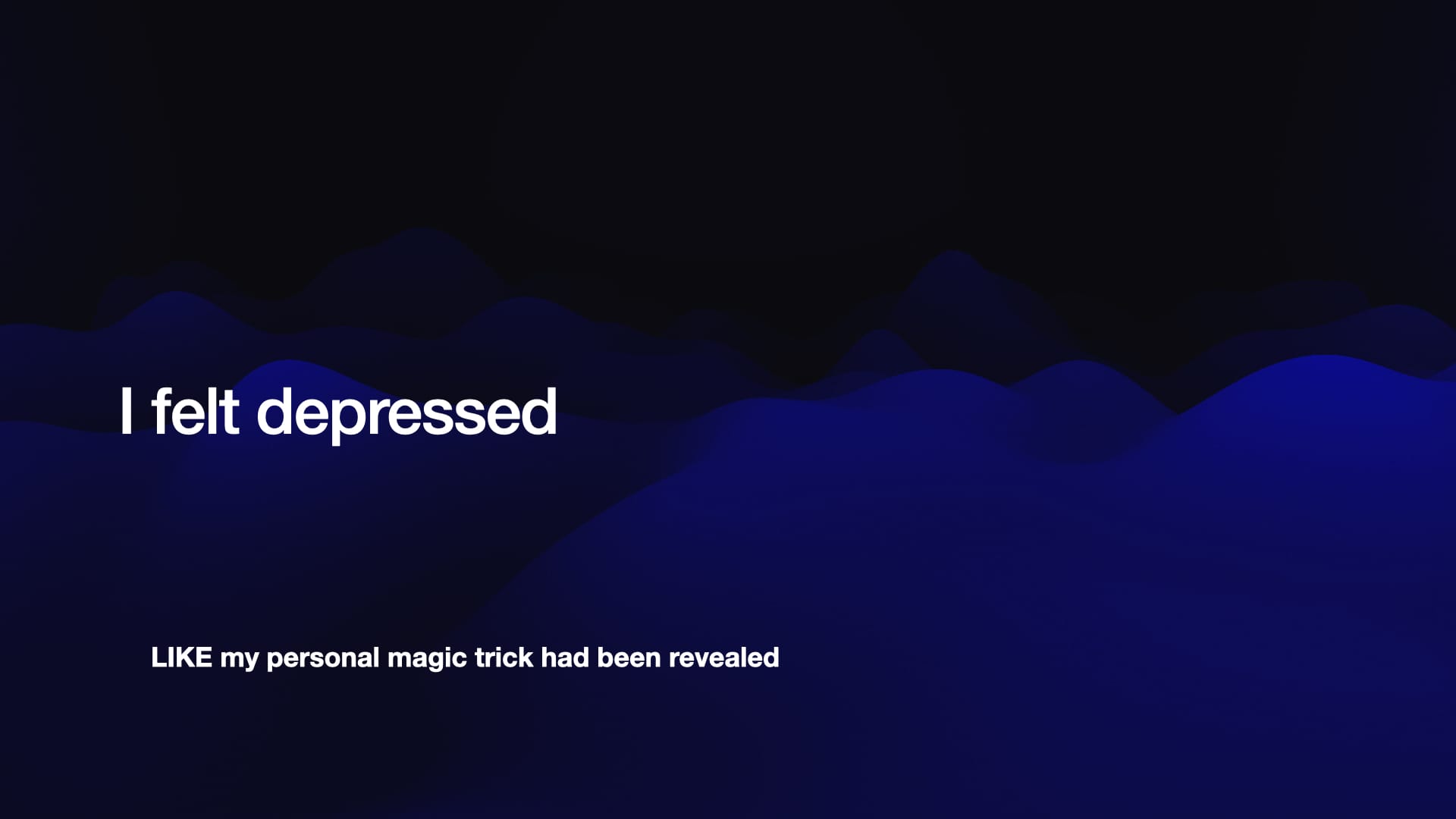
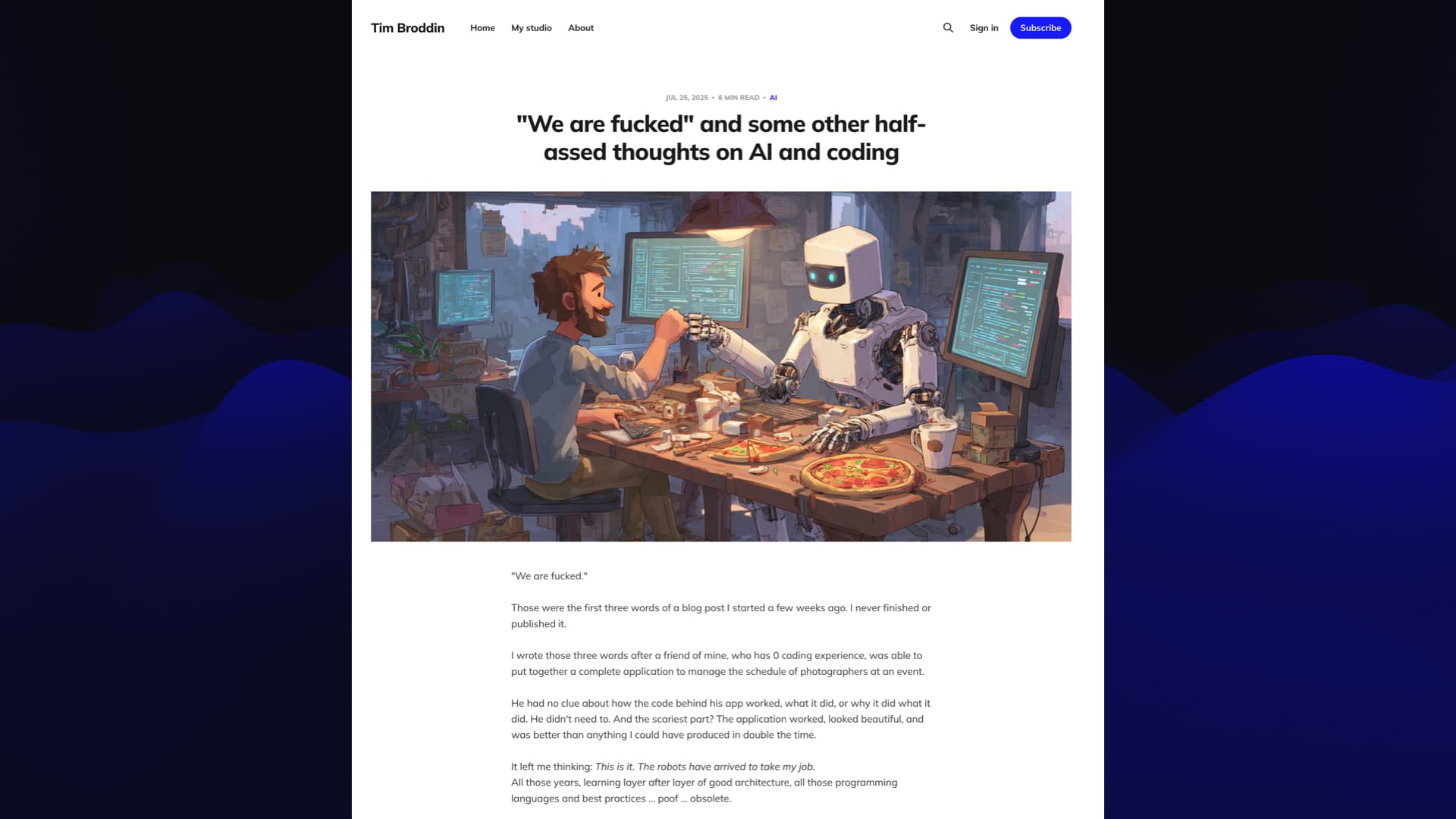
I wrote a blog post about it.
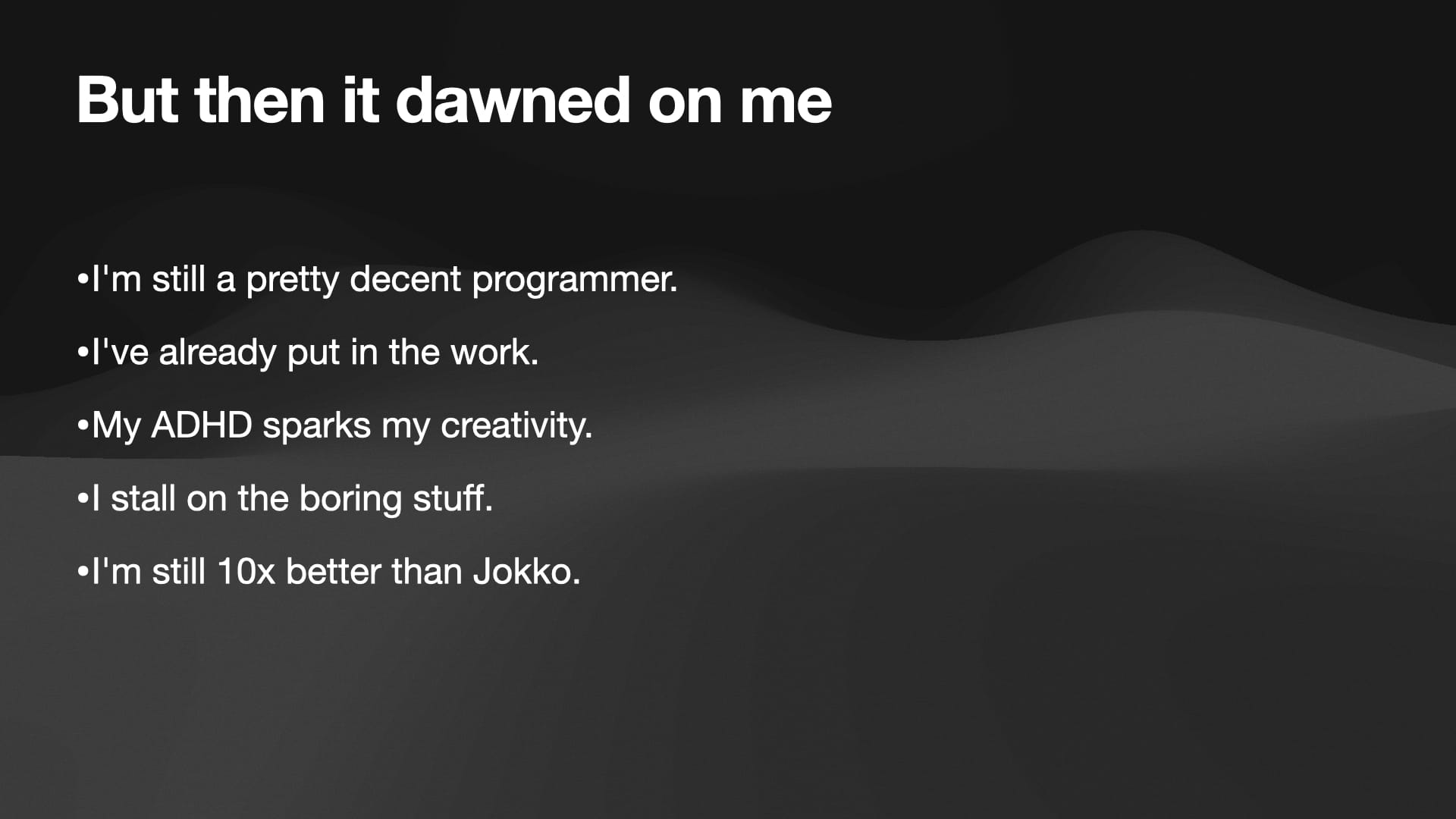
And while crafting that post dawned upon me
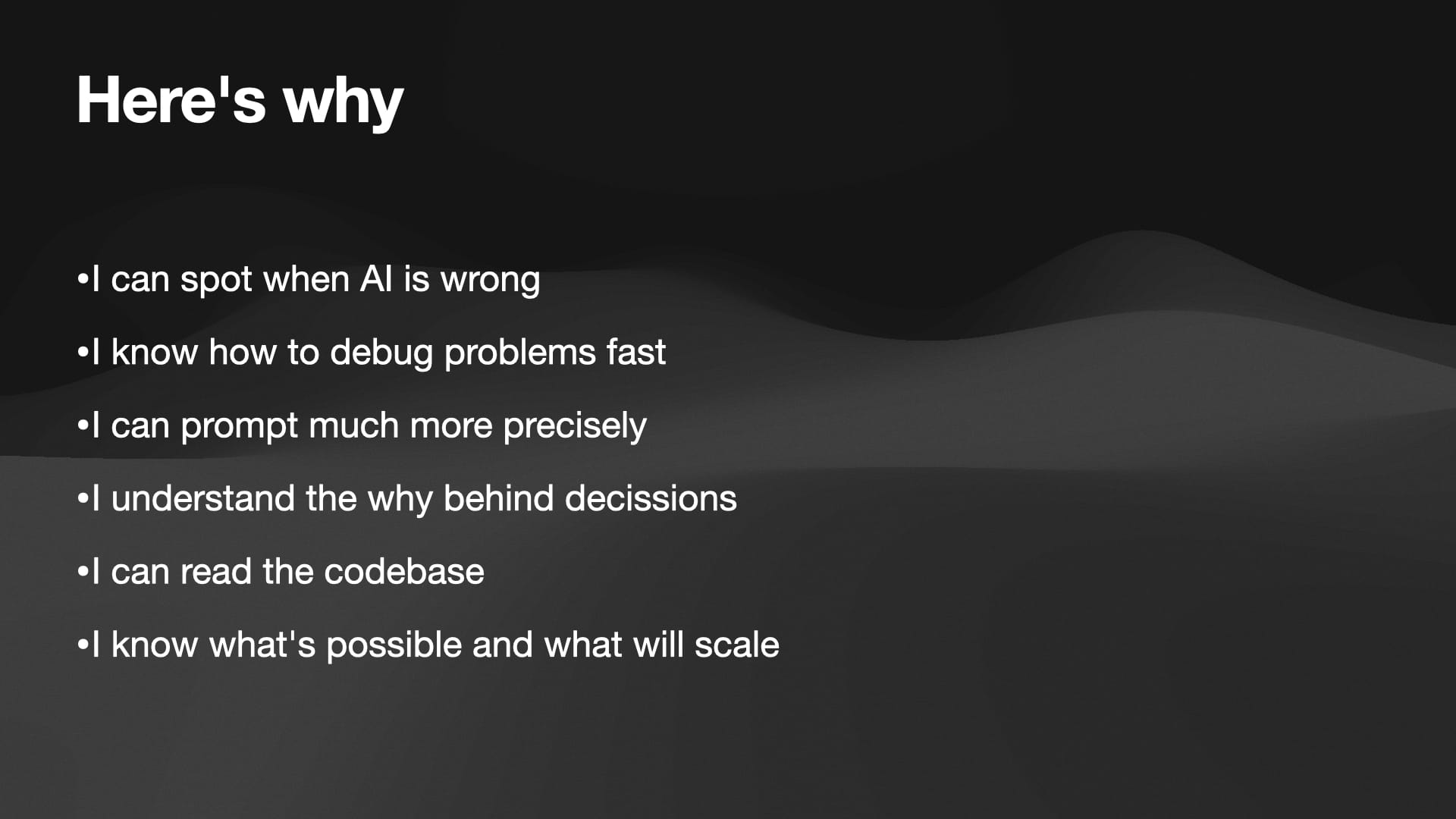
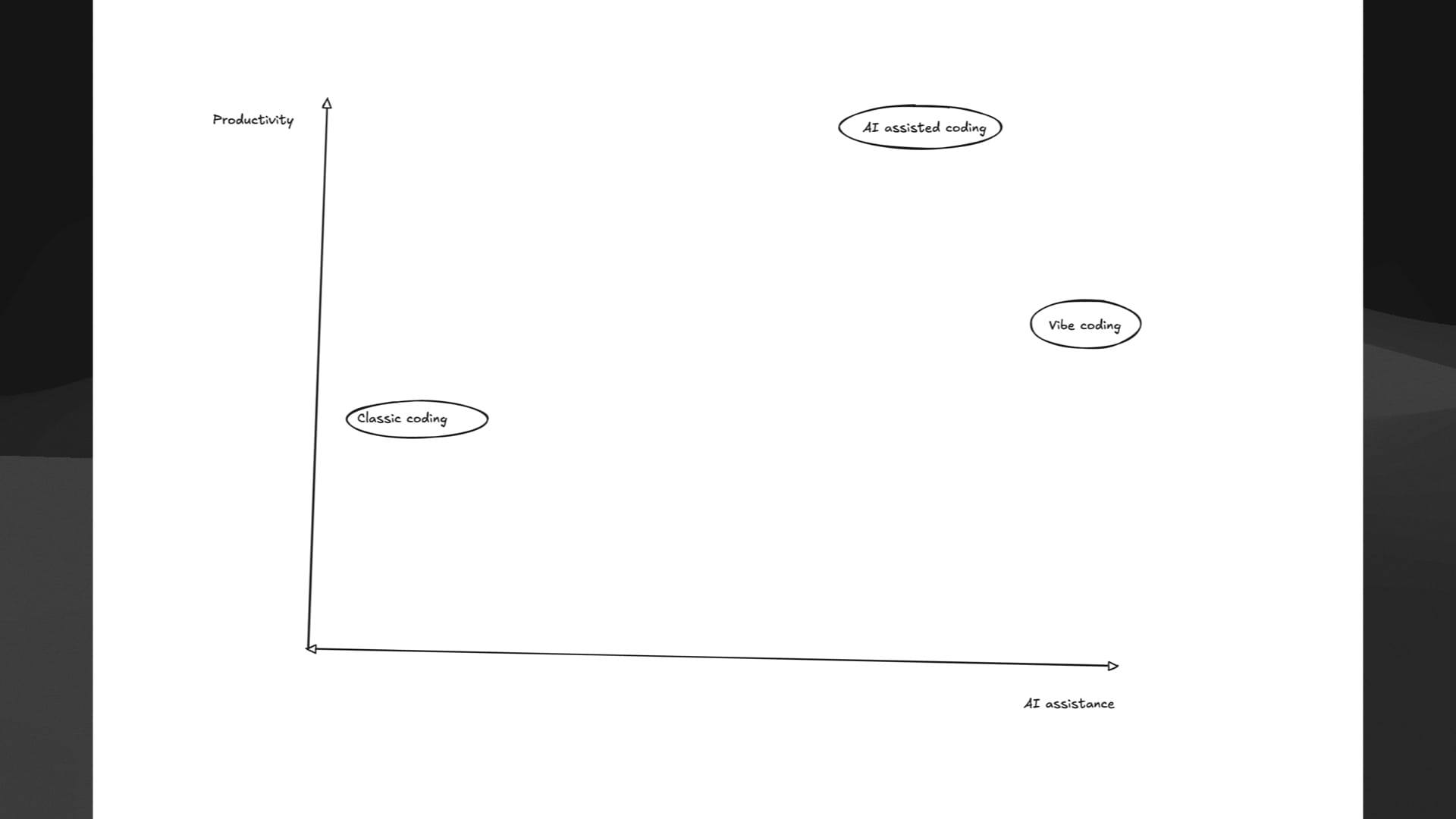
Let's just set the terms straight regarding vibe coding & AI assisted coding with a very crooked graph.
I think on the one end of the spectrum you have vibe coding, not looking at any code at all. Just YOLO and let the system figure it out.
On the other hand you classic coding. And then you have AI assisted coding, which can also mean not writing one line of code by hand, but you still have a mental model of the code, and you can jump in and correct things.
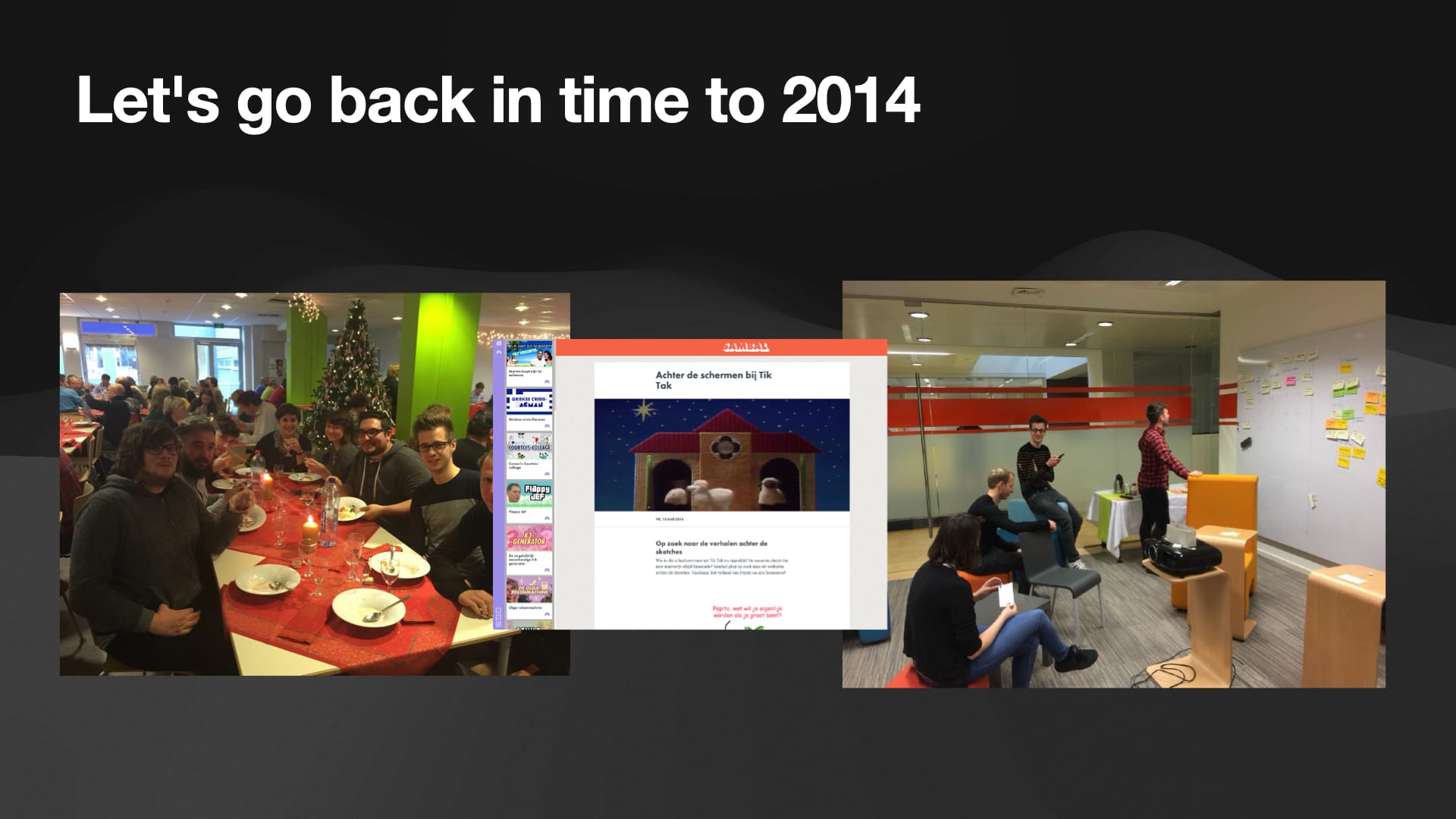
I could show you how I use AI at my freelancing clients. But I'm bound by NDAs, and it would also just be screenshots of me talking to a chatbot. So let's do something completely else. Let's jump back in time. Around 10 years ago I worked at VRT on Sambal.
It was kind of "De Ideale Wereld" but for 16-20 year olds.
Every day we would come up with around 3-4 funny articles, and a game or other digital tool. It was a lot of fun.
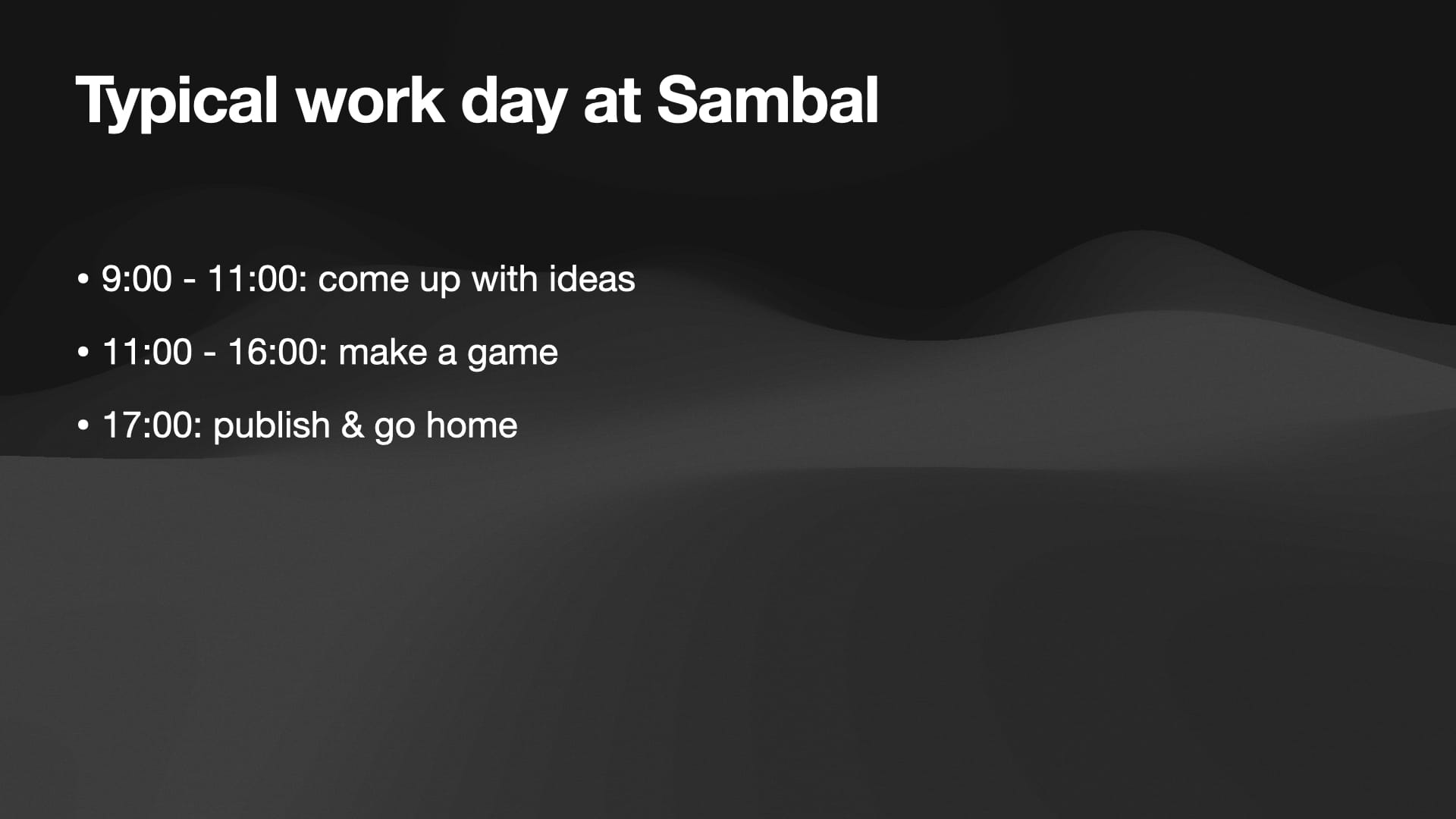
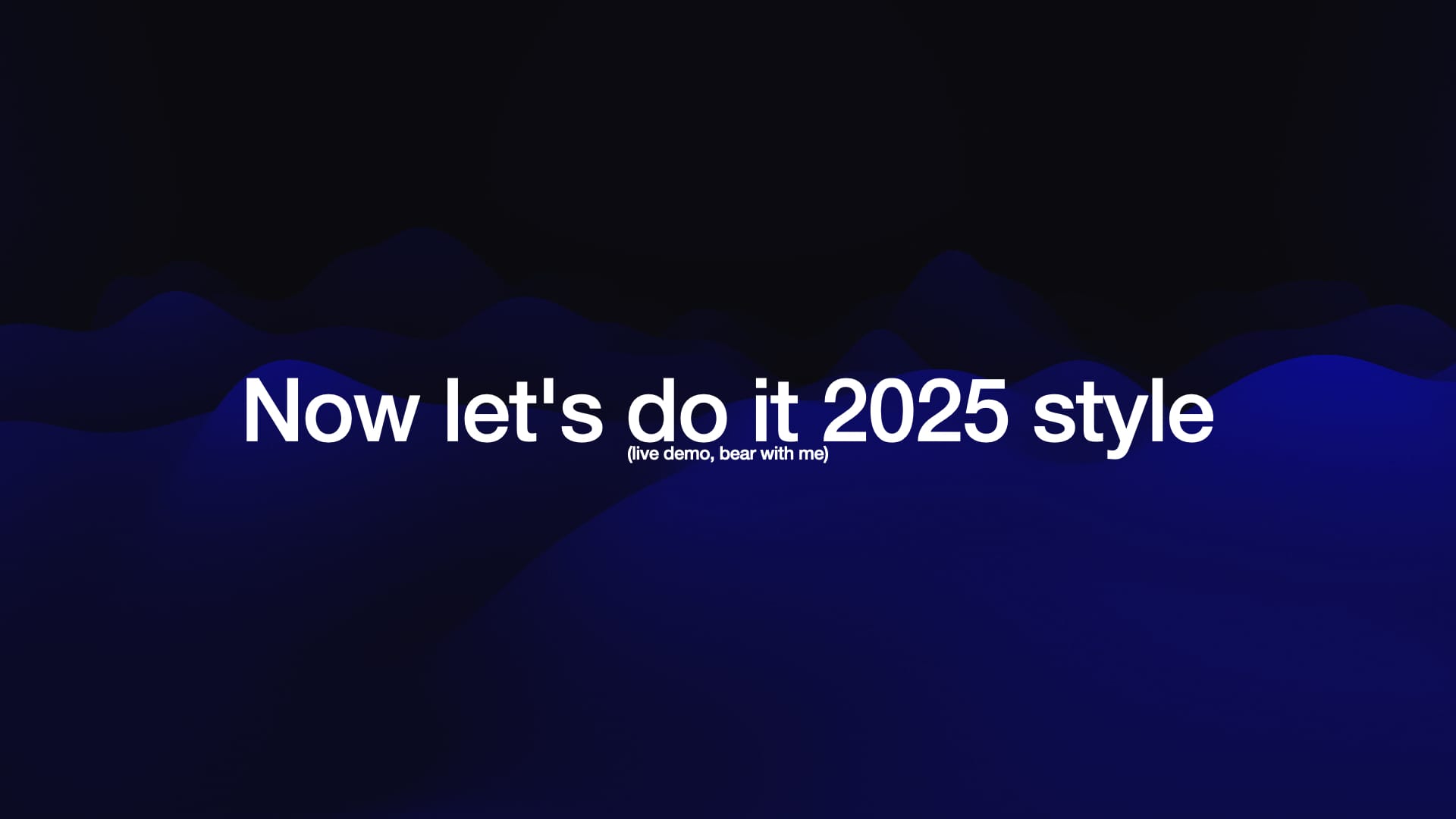
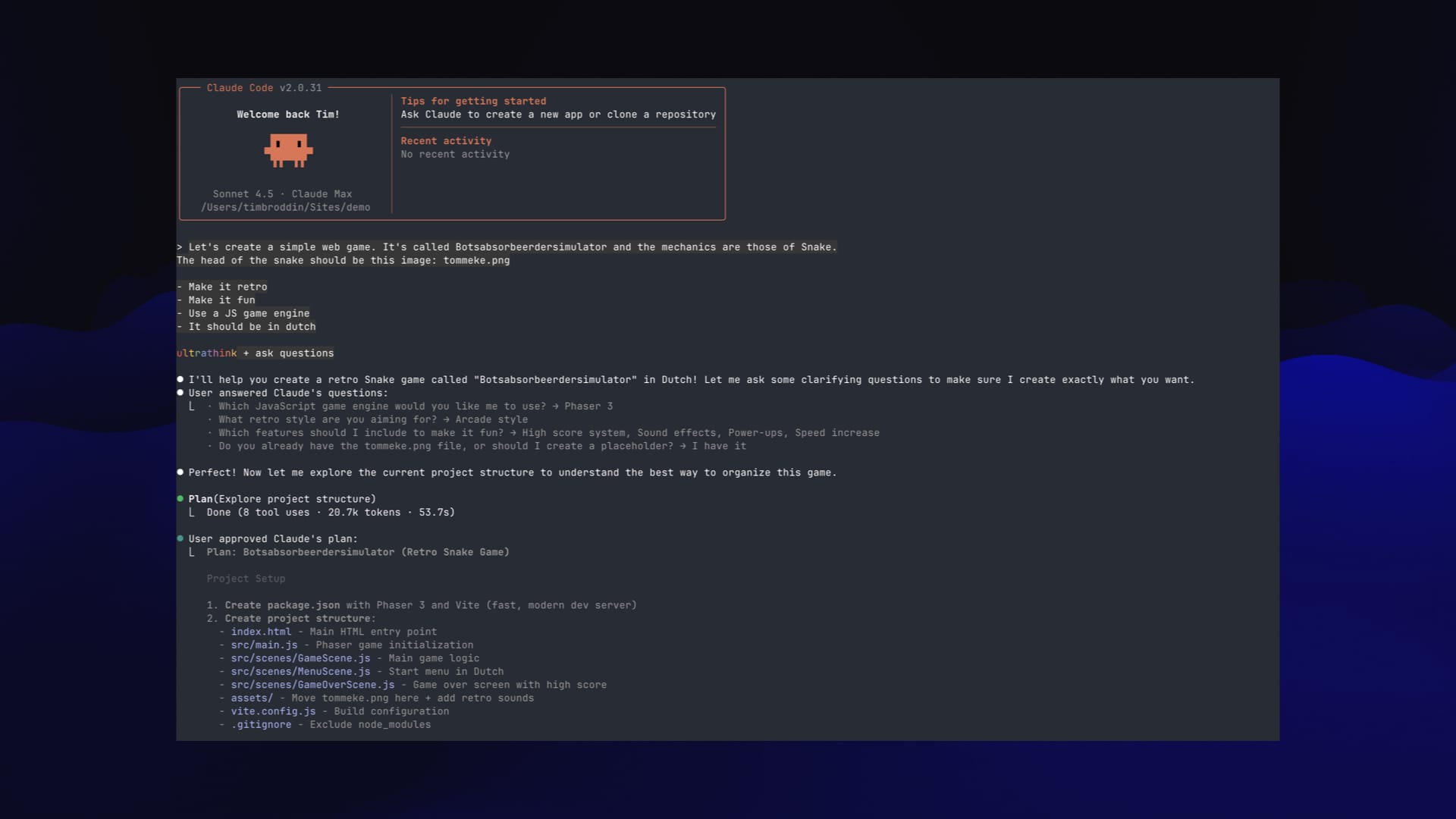
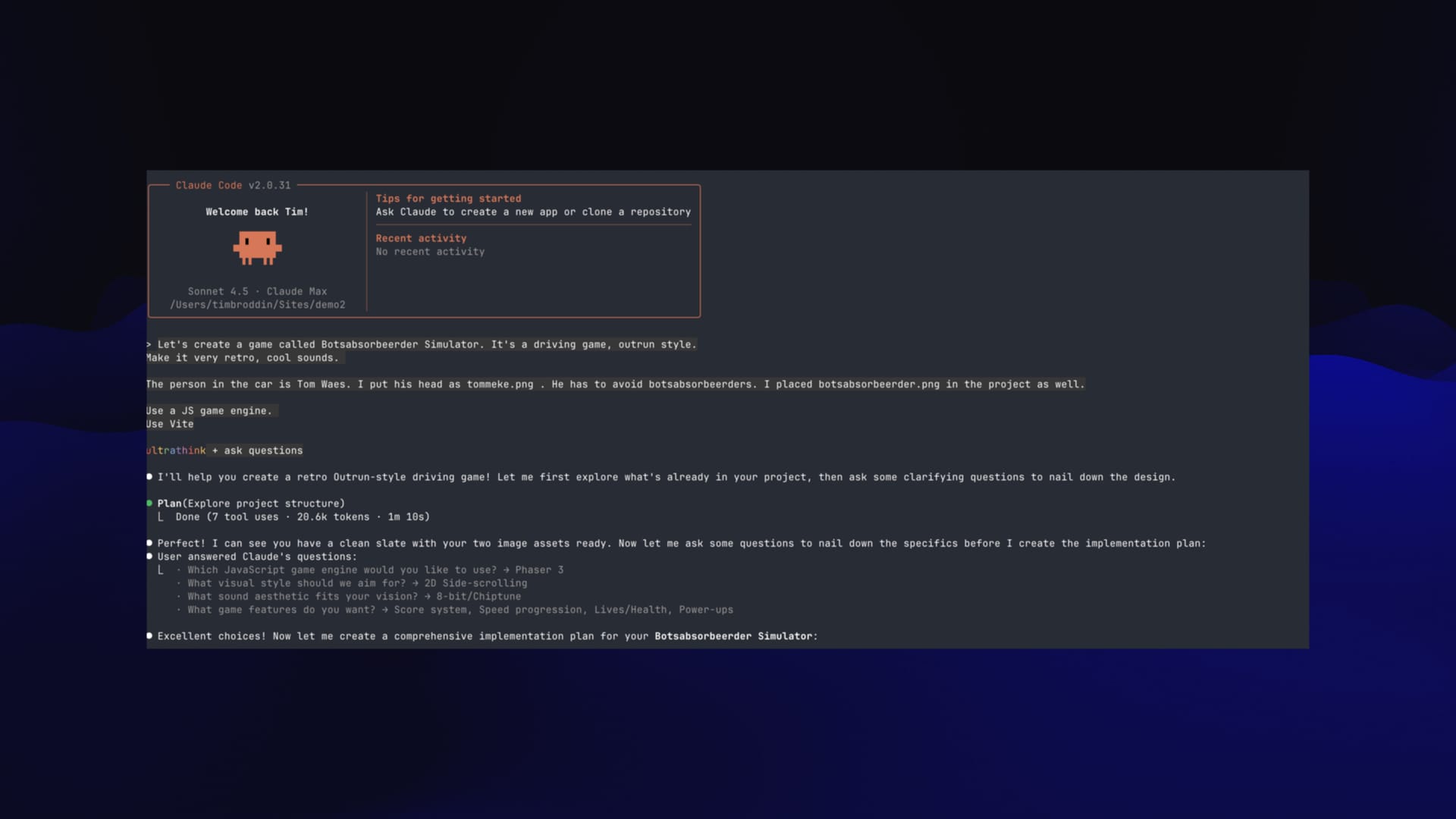
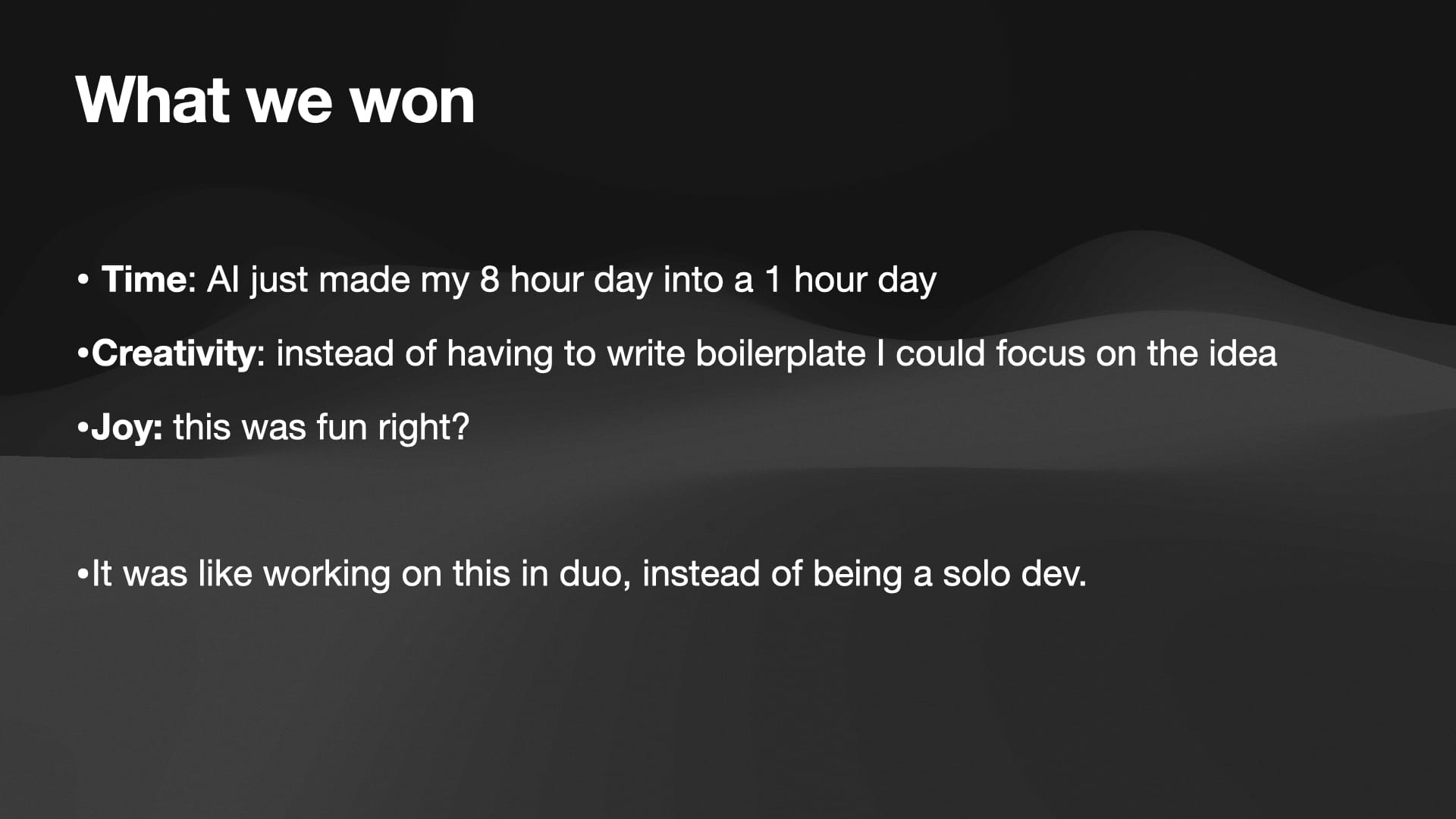
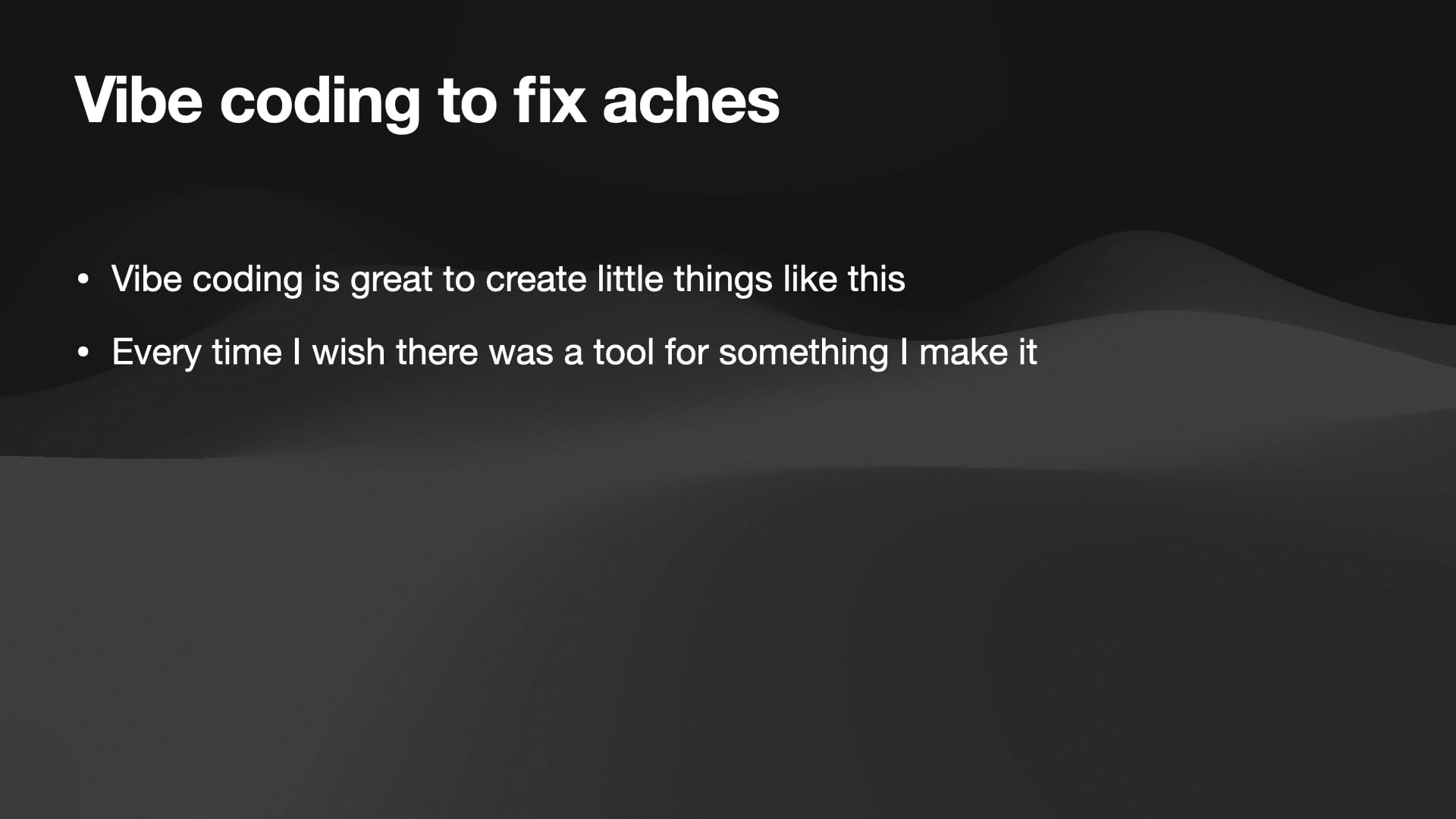
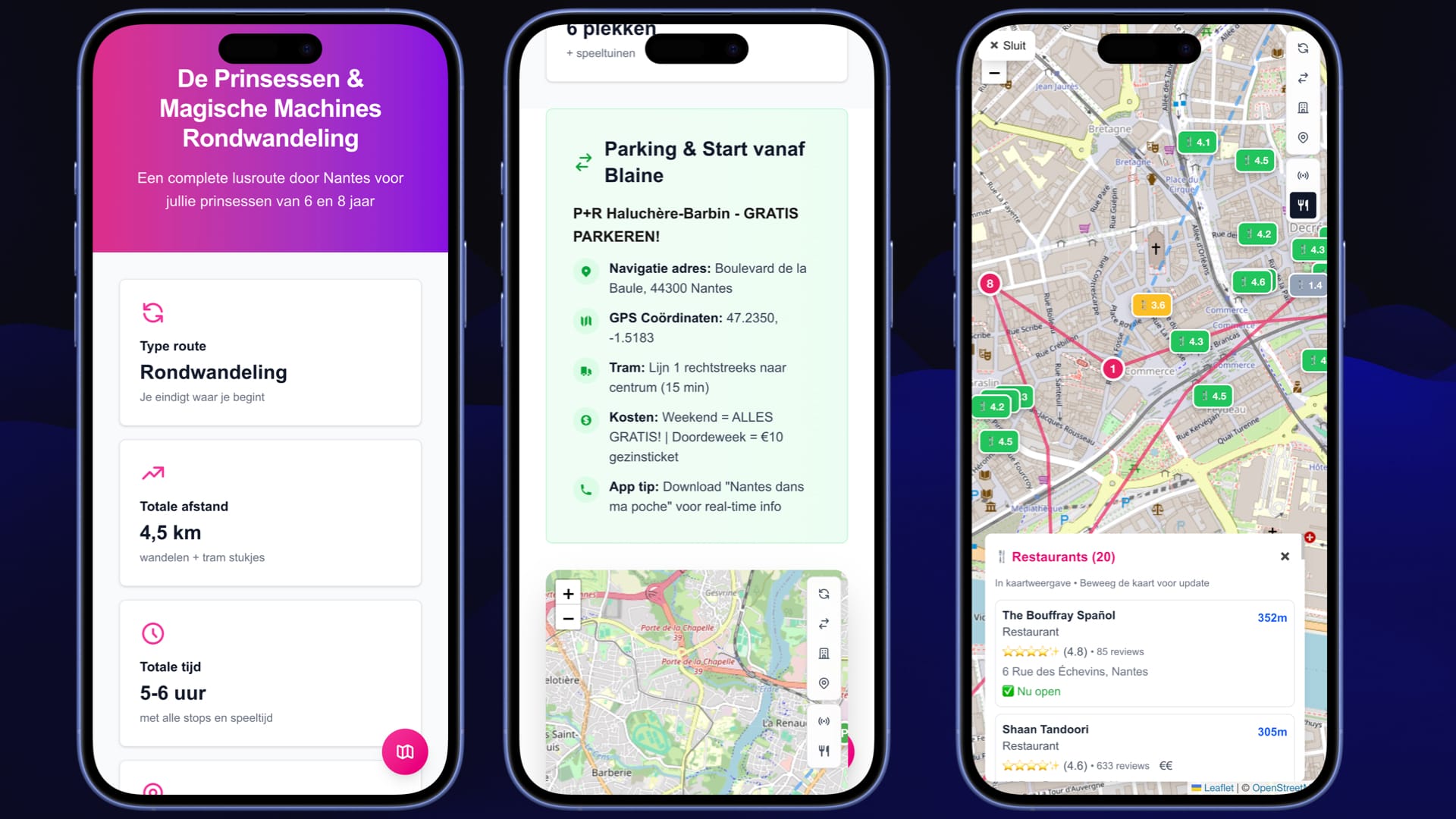
Or this. We were in Nantes this summer with the kids. I promised my girlfriend that I wasn't going to do any work there, but as we were researching what we could do in the city it started itching again. I asked ChatGPT to do a Deep Research of fun things in the city with kids. I fed that research to Claude Code, and I asked it to create a Next.js app.
I also asked it to integrate with Google Places so the map could show us restaurants close by. I started on this project at 9, we left for the city at 10. One hour.
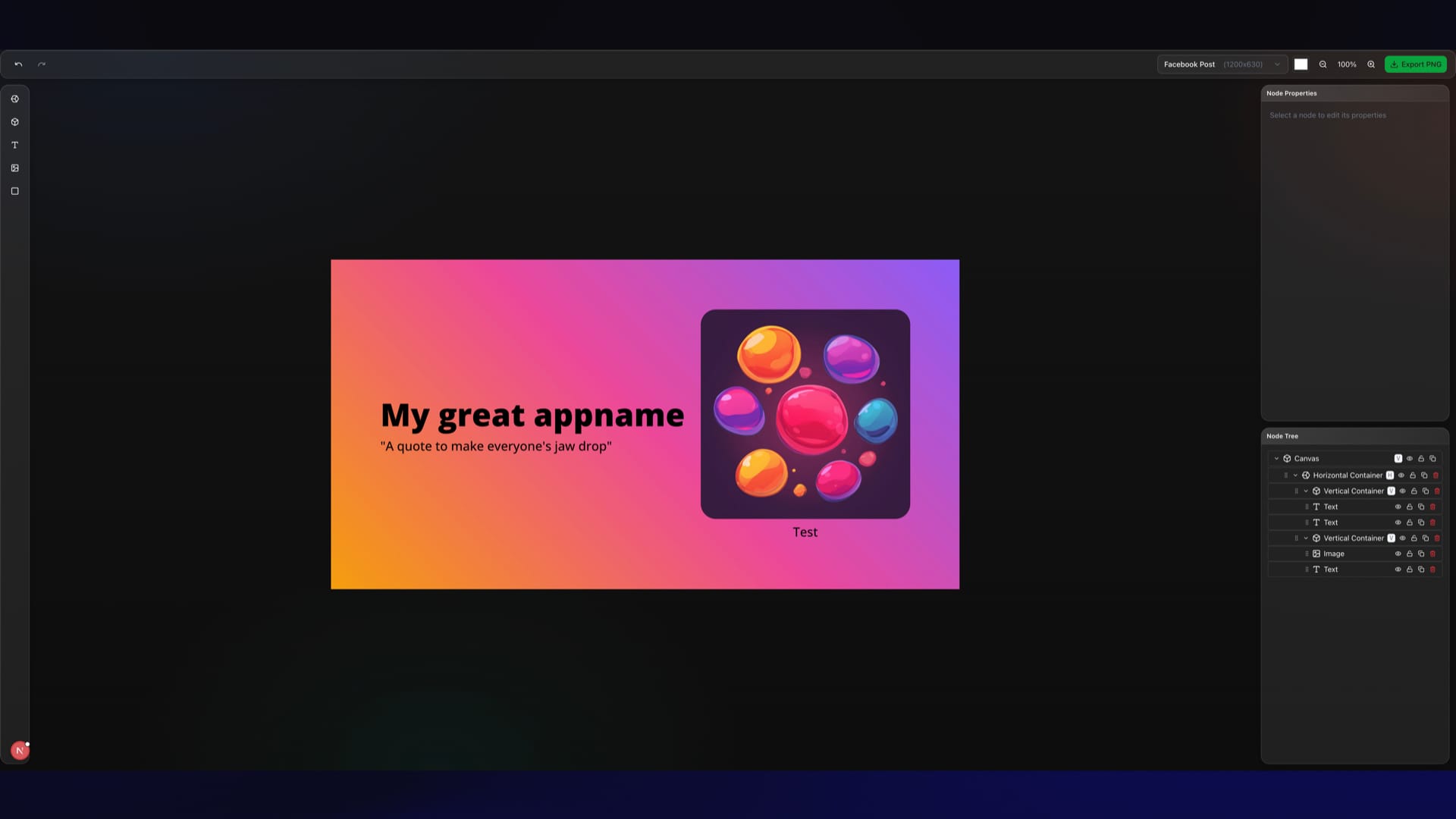
For example: I hate creating marketing images, you know those Facebook Share images etc.
Photoshop doesn't think like a programmer - so I quickly built my own browser based Photoshop. It allows for logical layout using things someone working with web technologies knows: flexboxes, tailwind system, ...
In less than 3 hours.
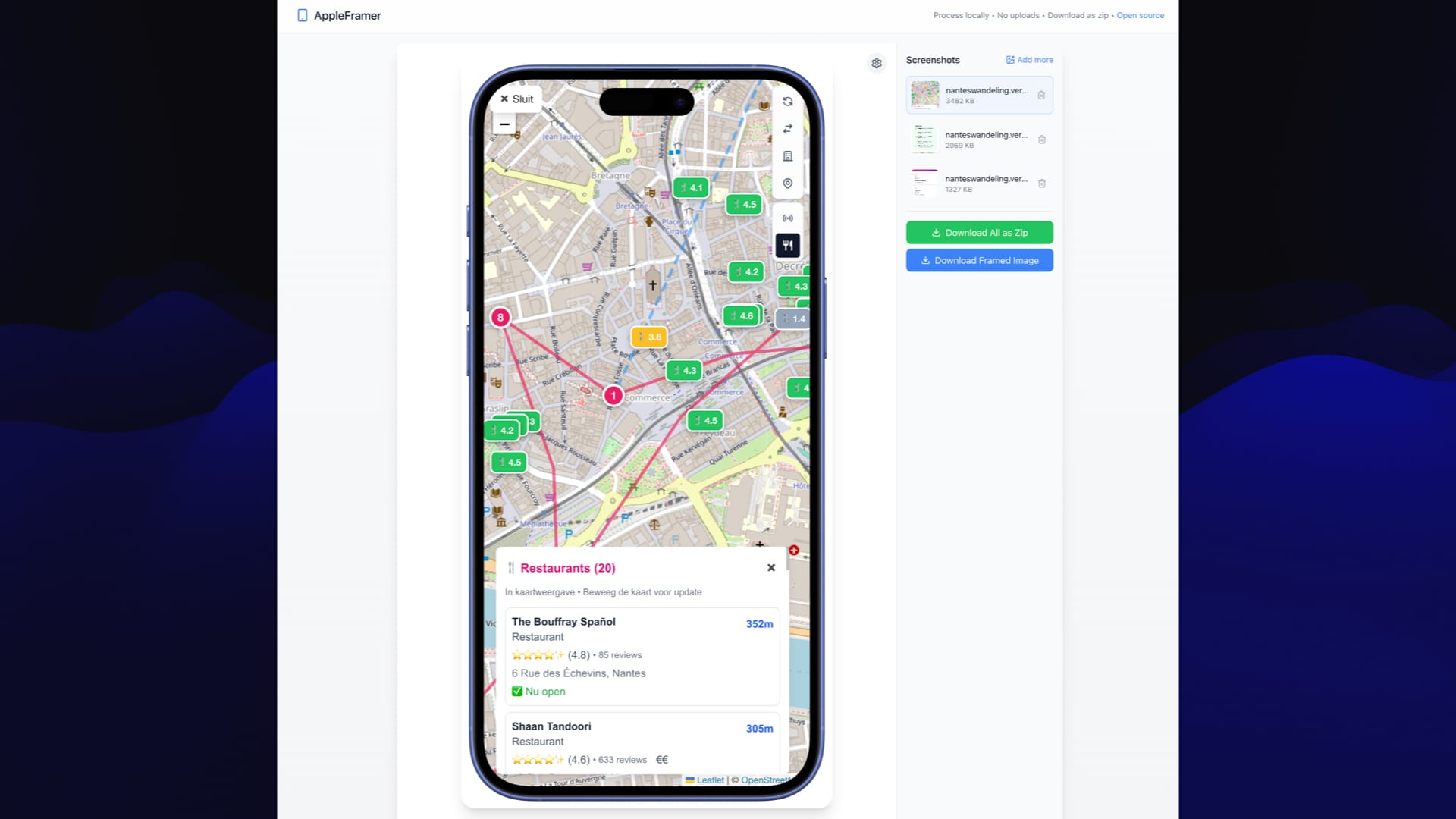
Same for all the iPhone screenshots in this presentation. I made a tool for that that now gets used all the time.
Vibe coding takes the time needed to go from an idea to a prototype and divides it by ten.
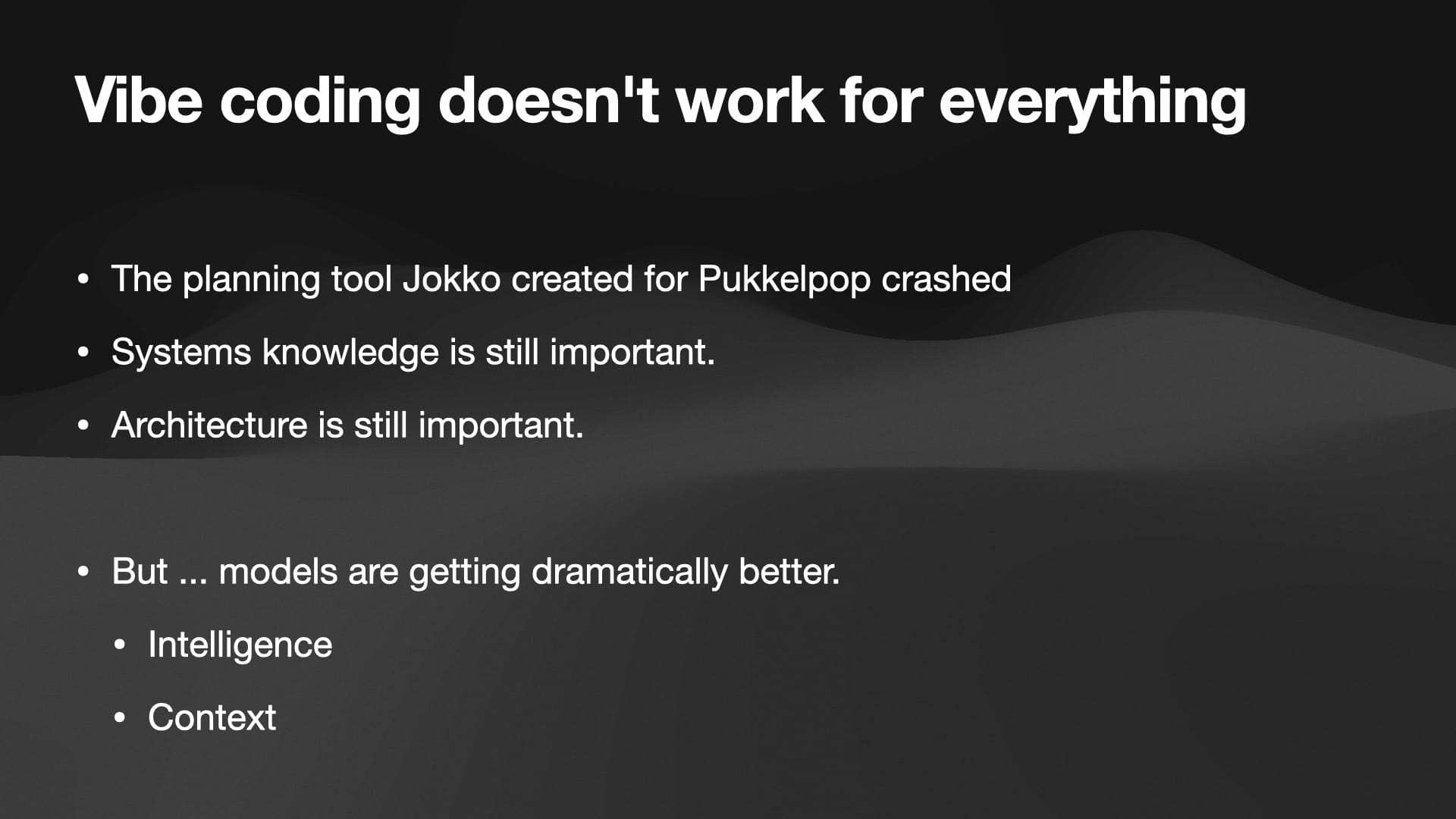
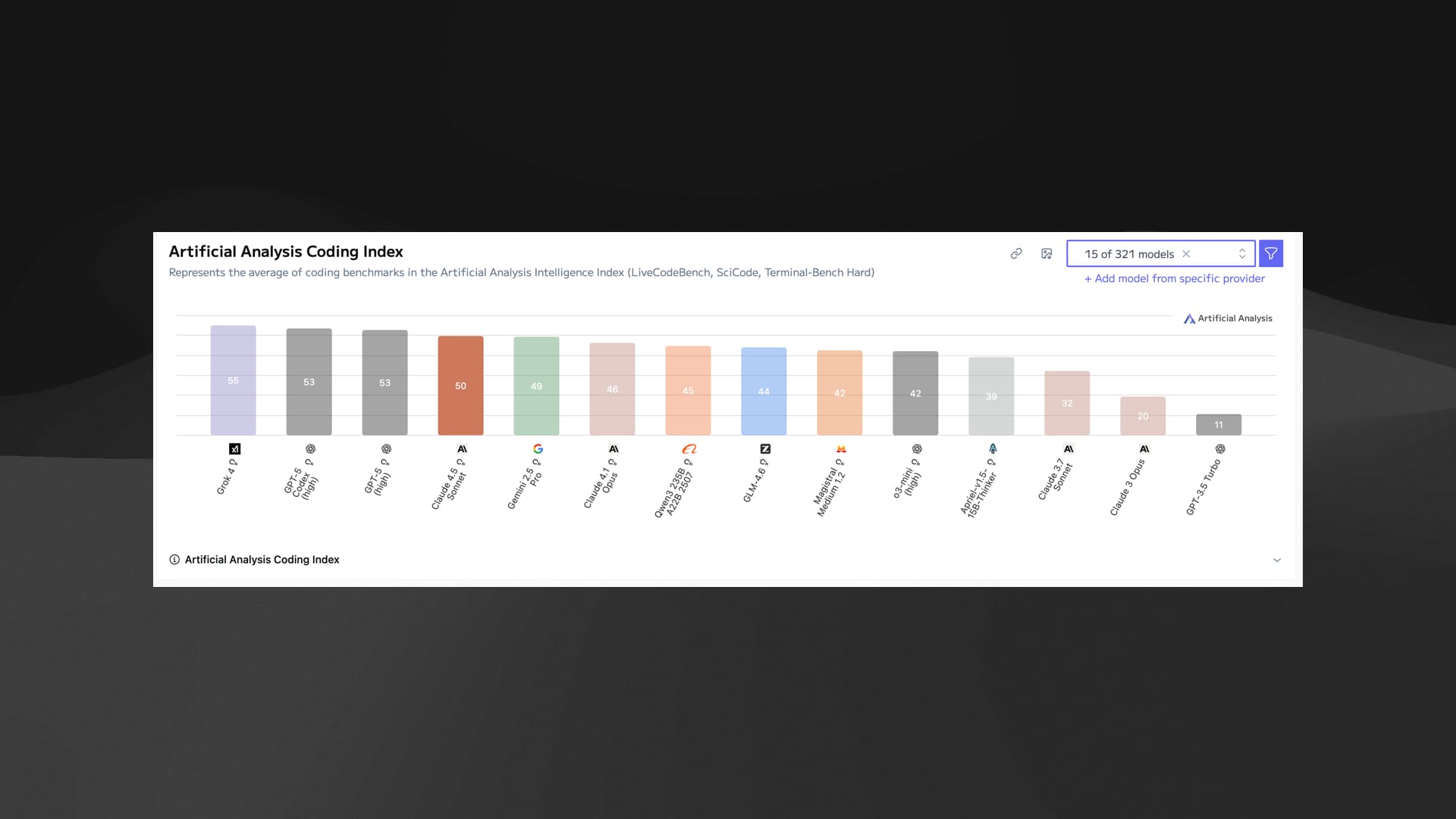
The first version of Copilot was powered by a model that was weaker than GPT 3.5 Turbo. If you see that the frontier models are now 5x better than this, that's a huge leap. In less than 3 years.
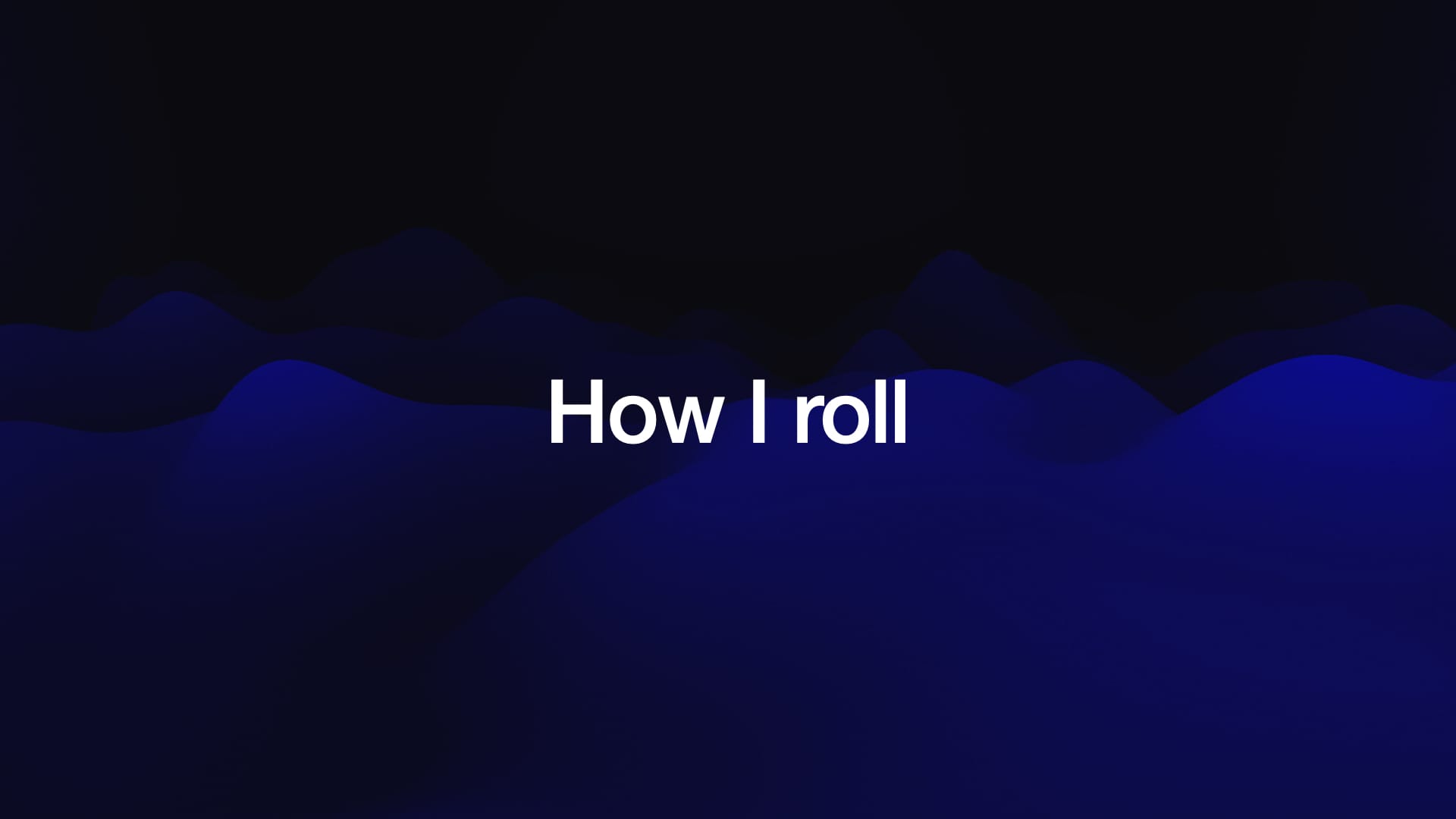
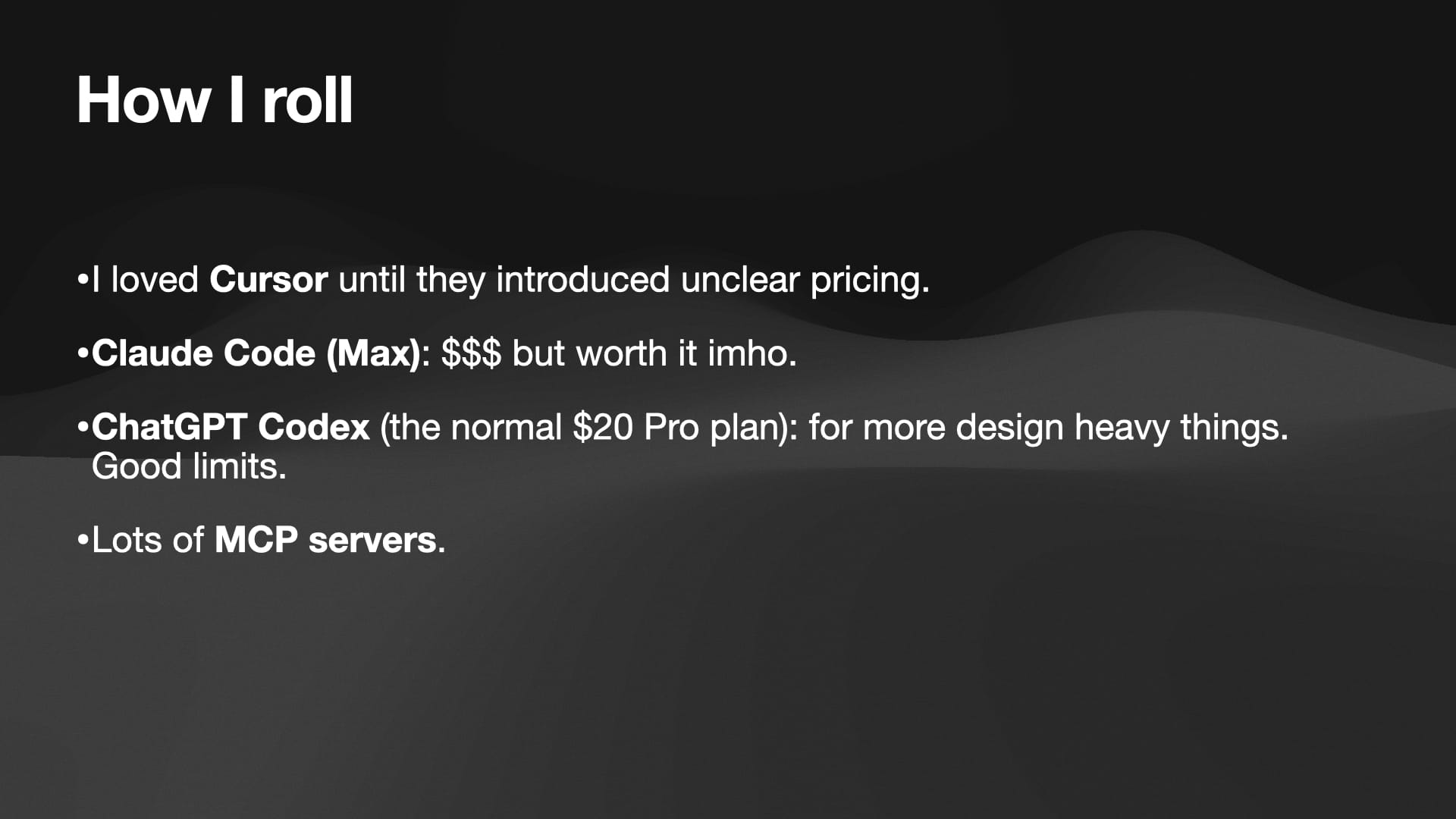
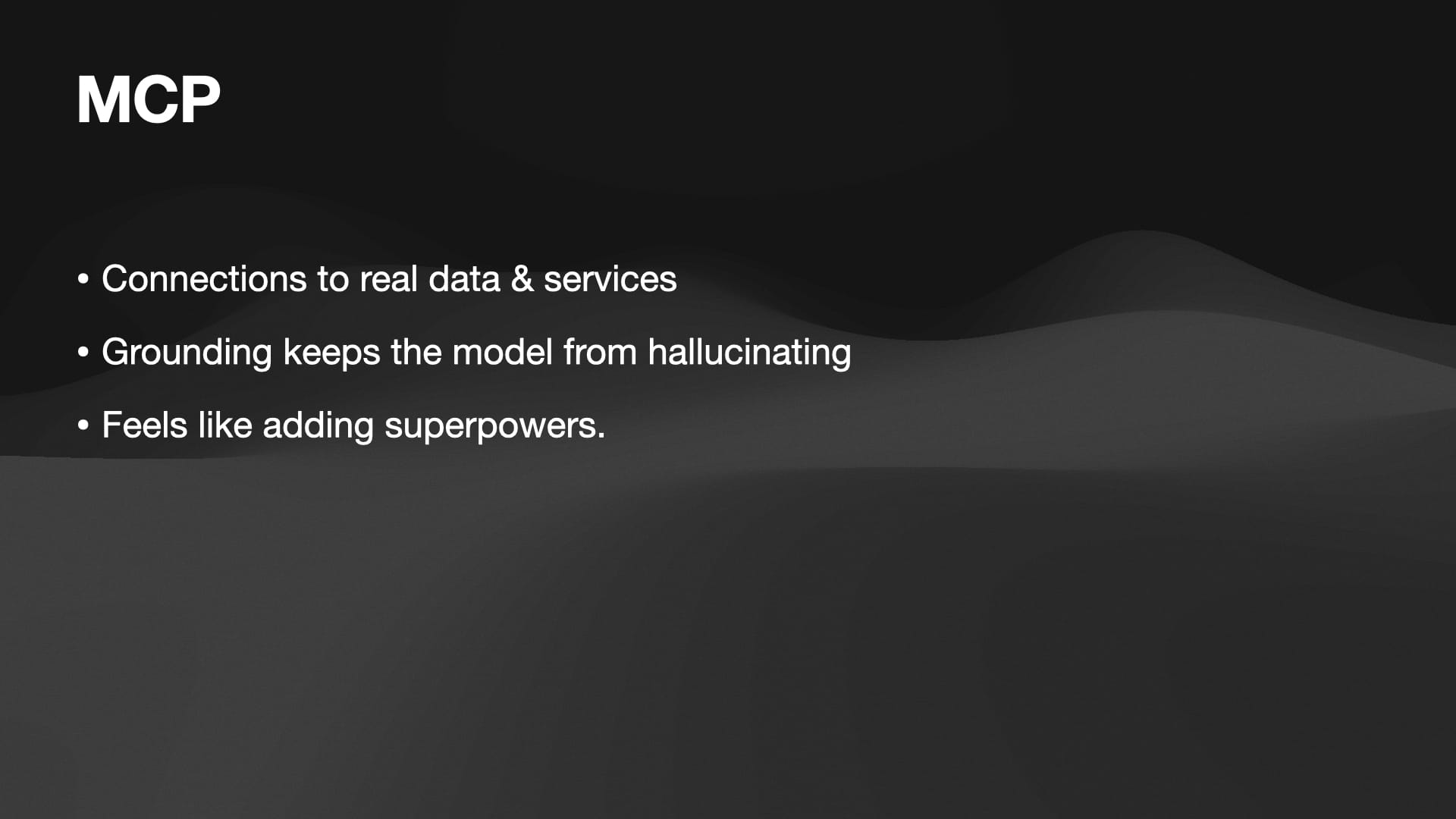
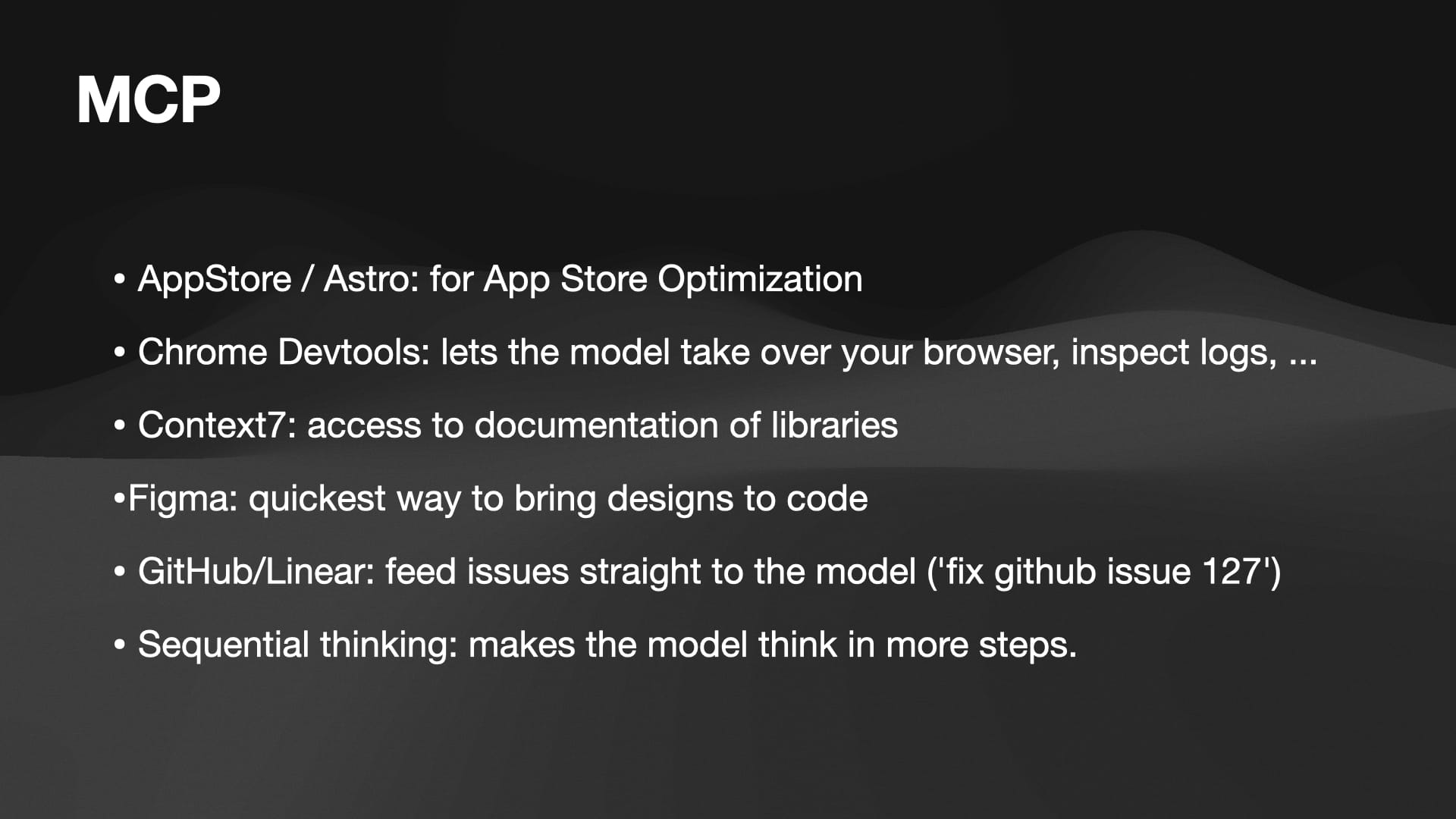
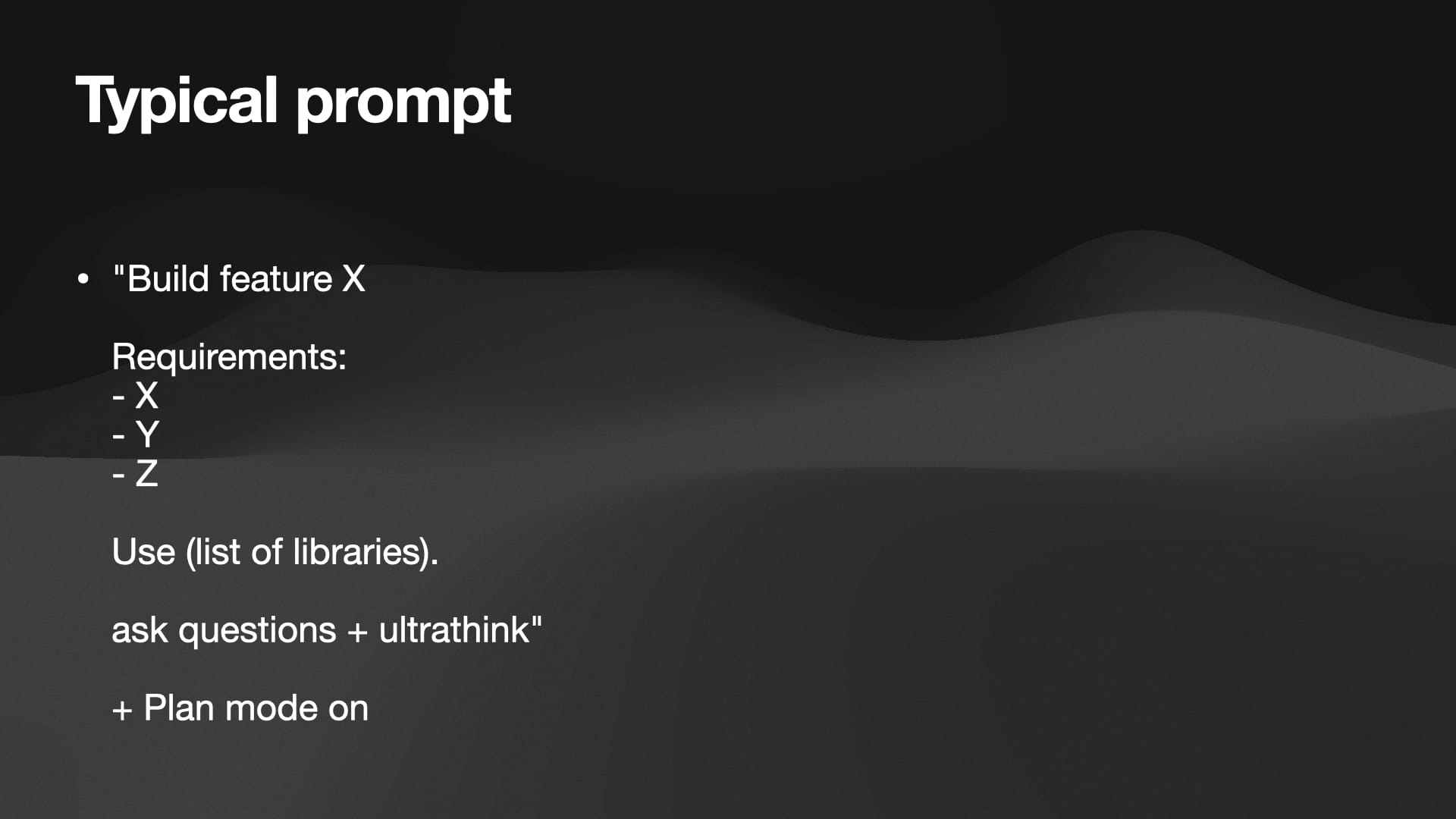
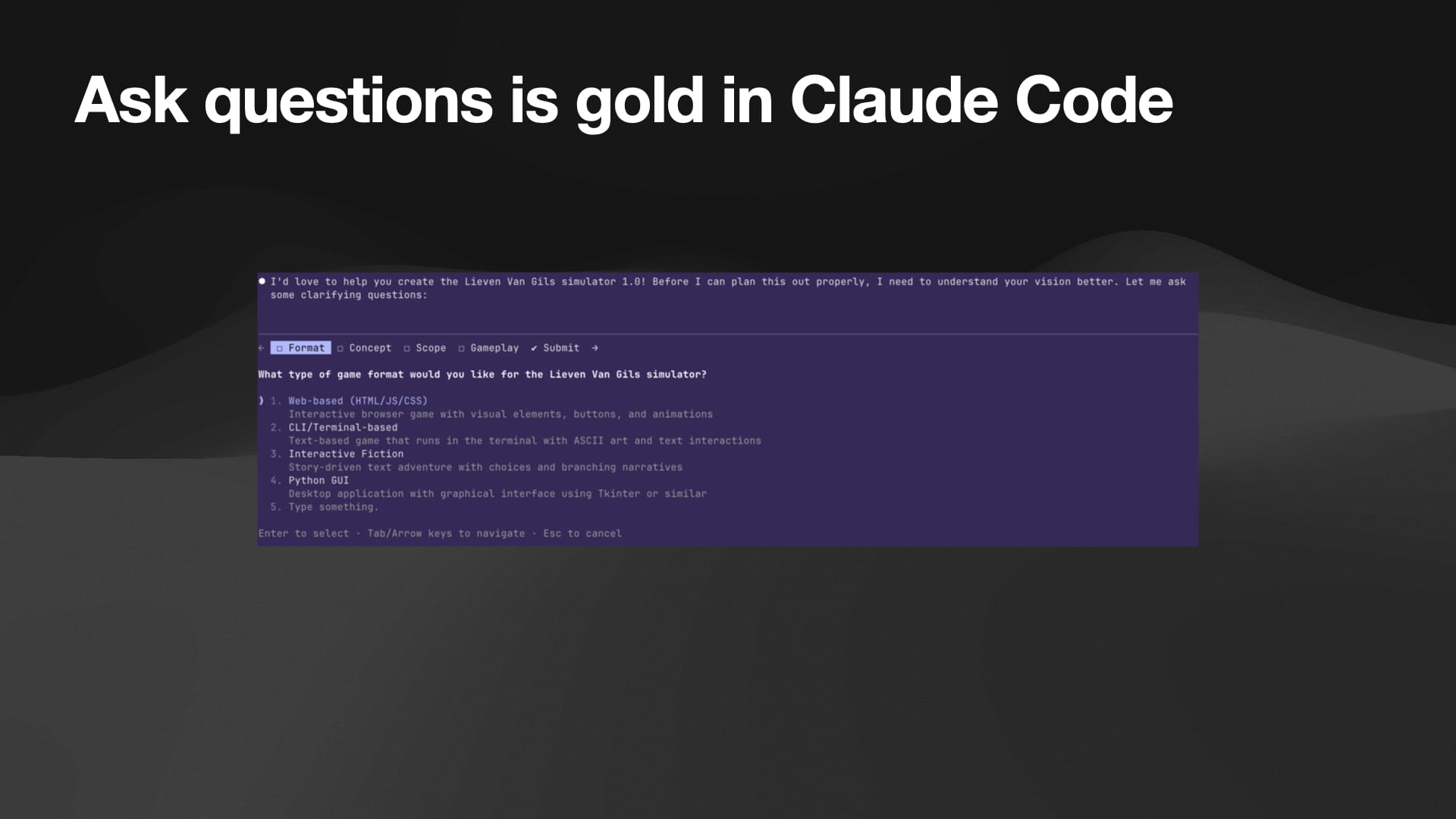
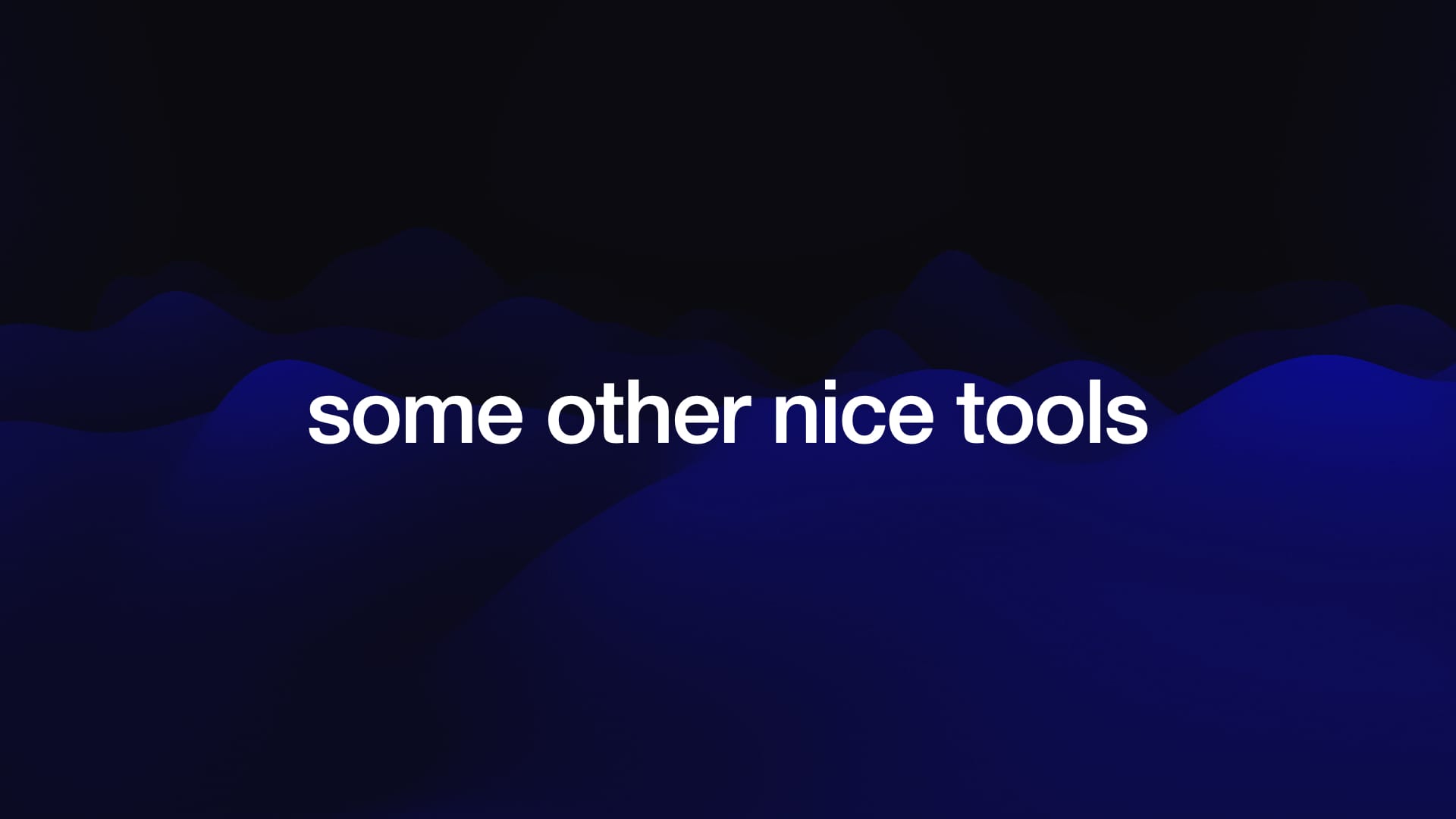
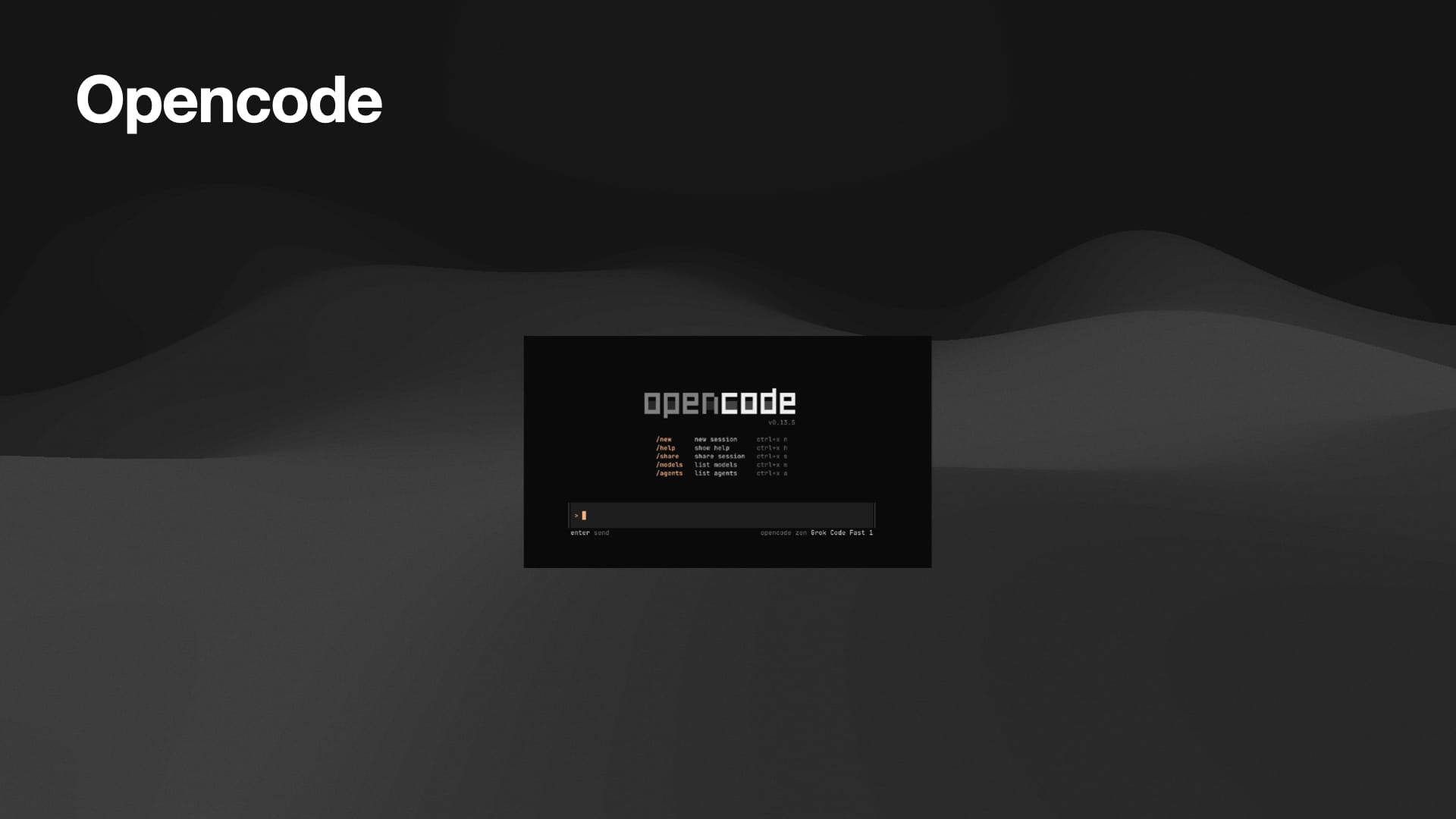
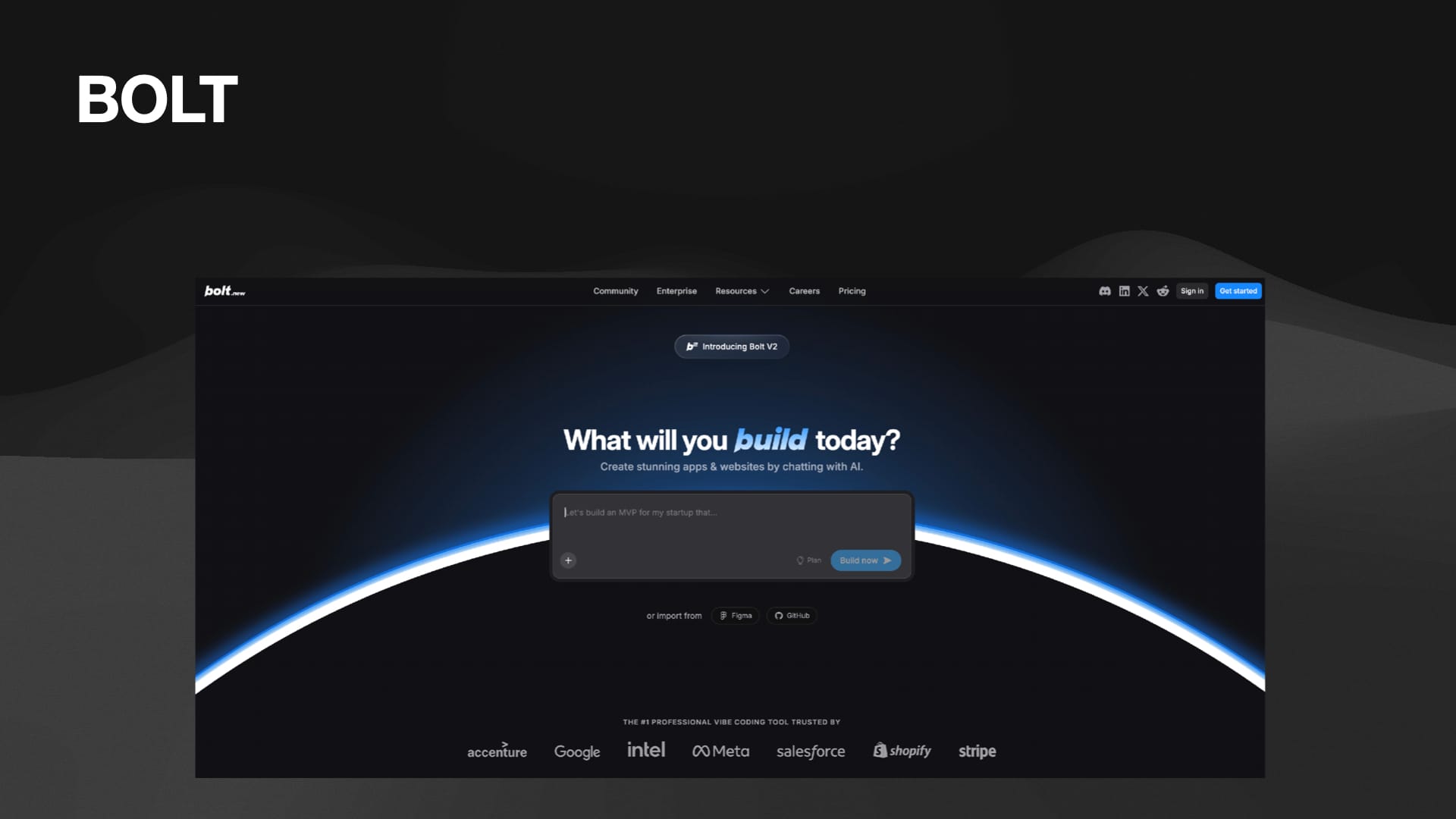
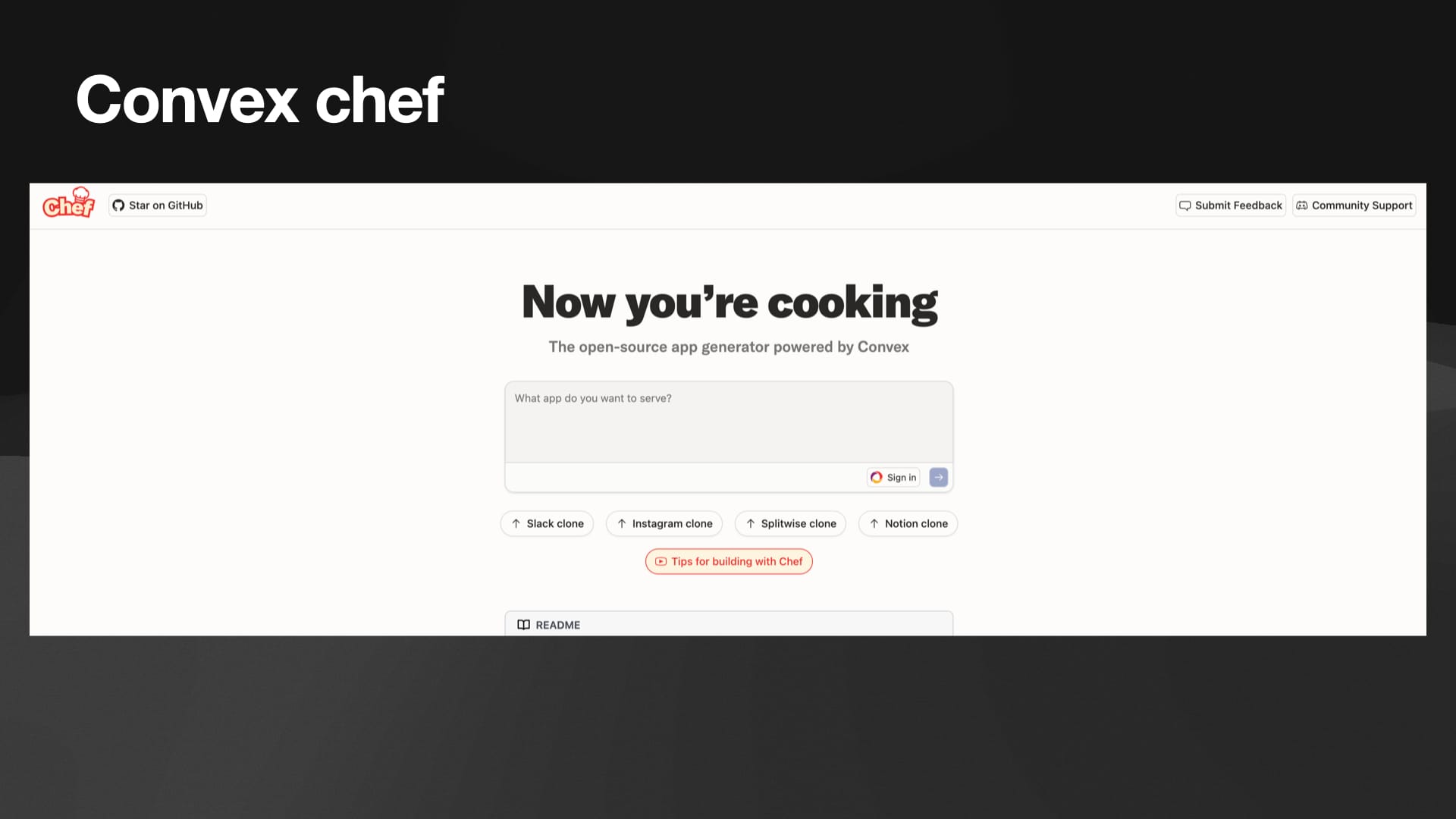
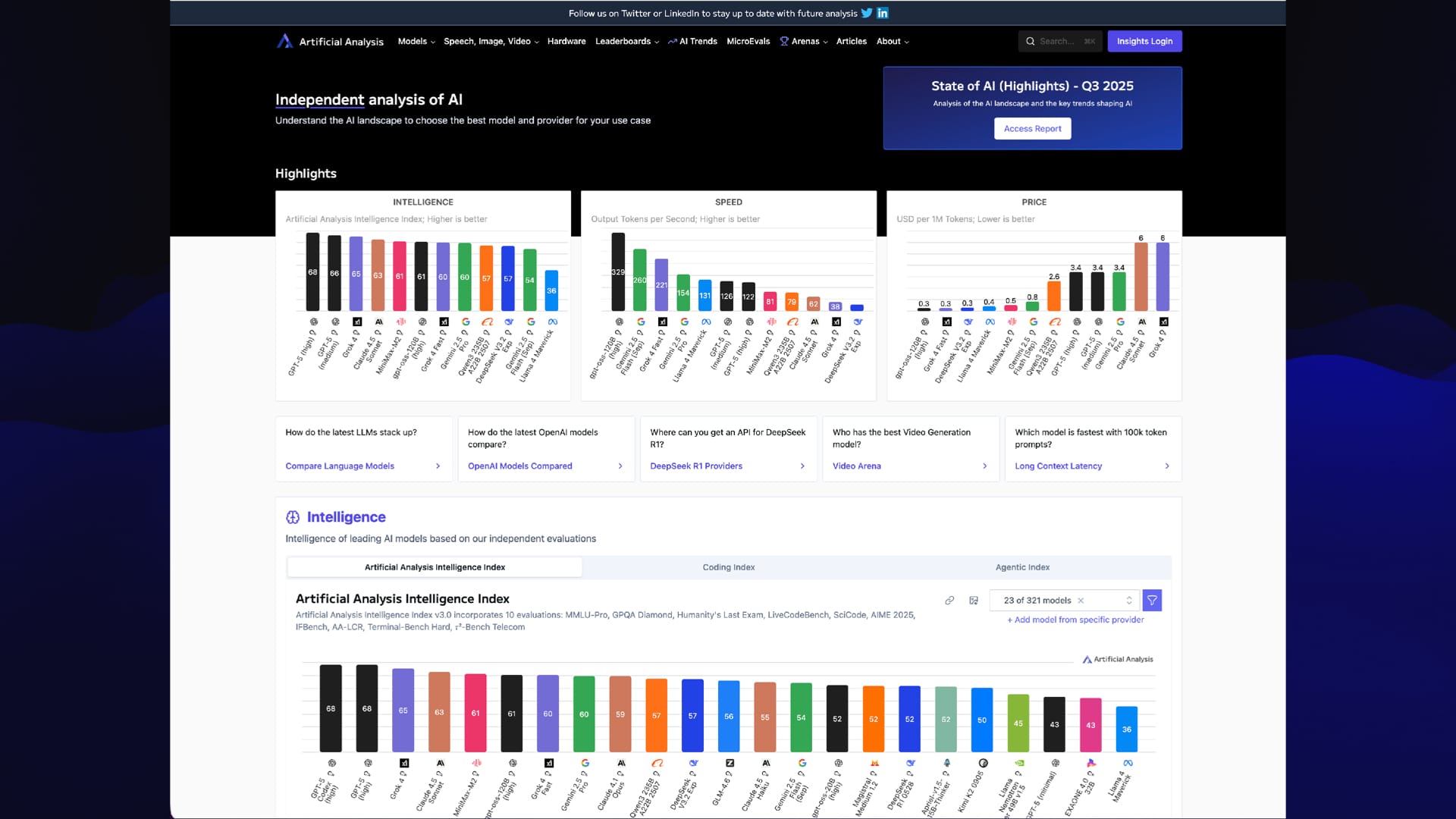
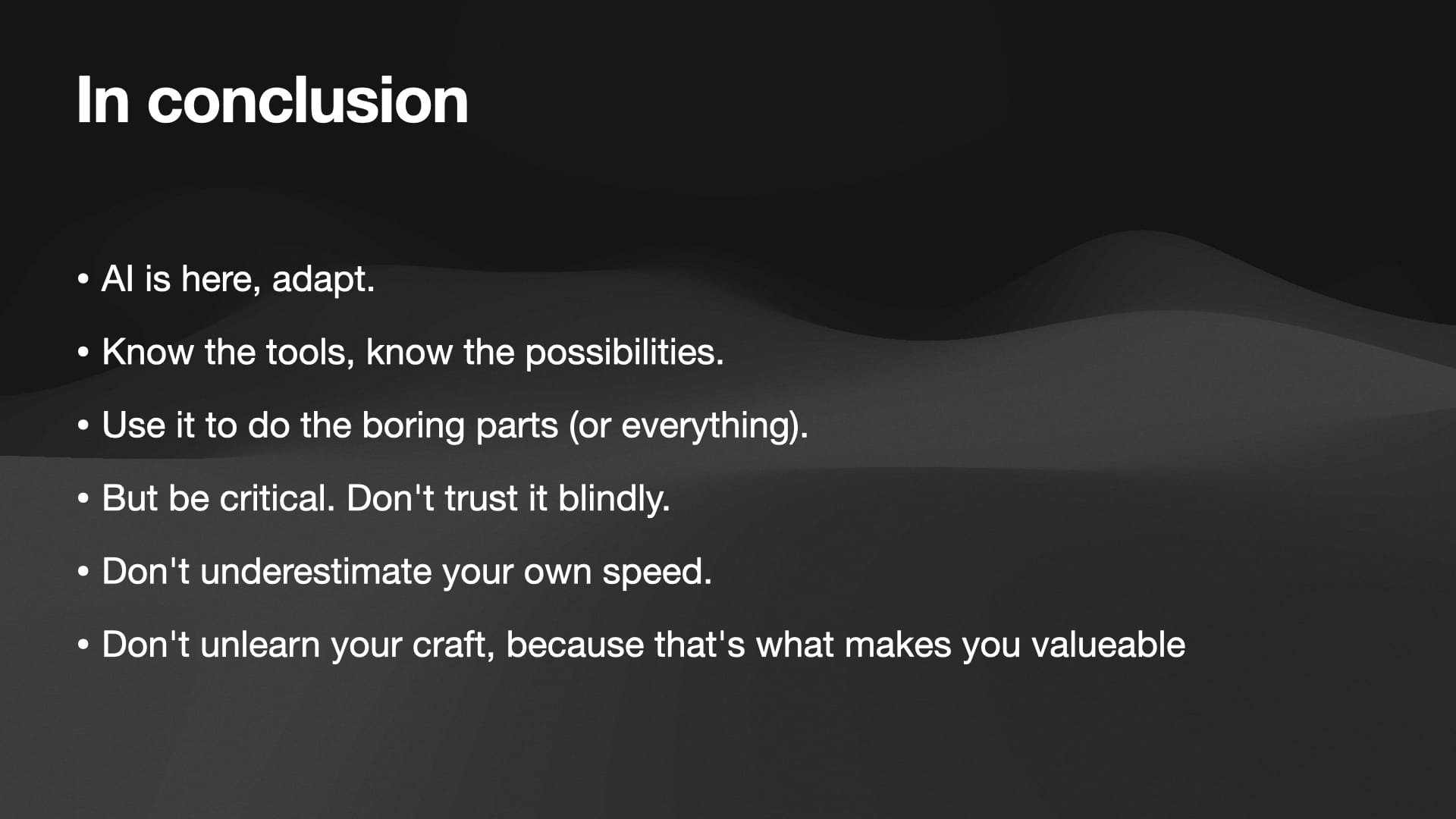
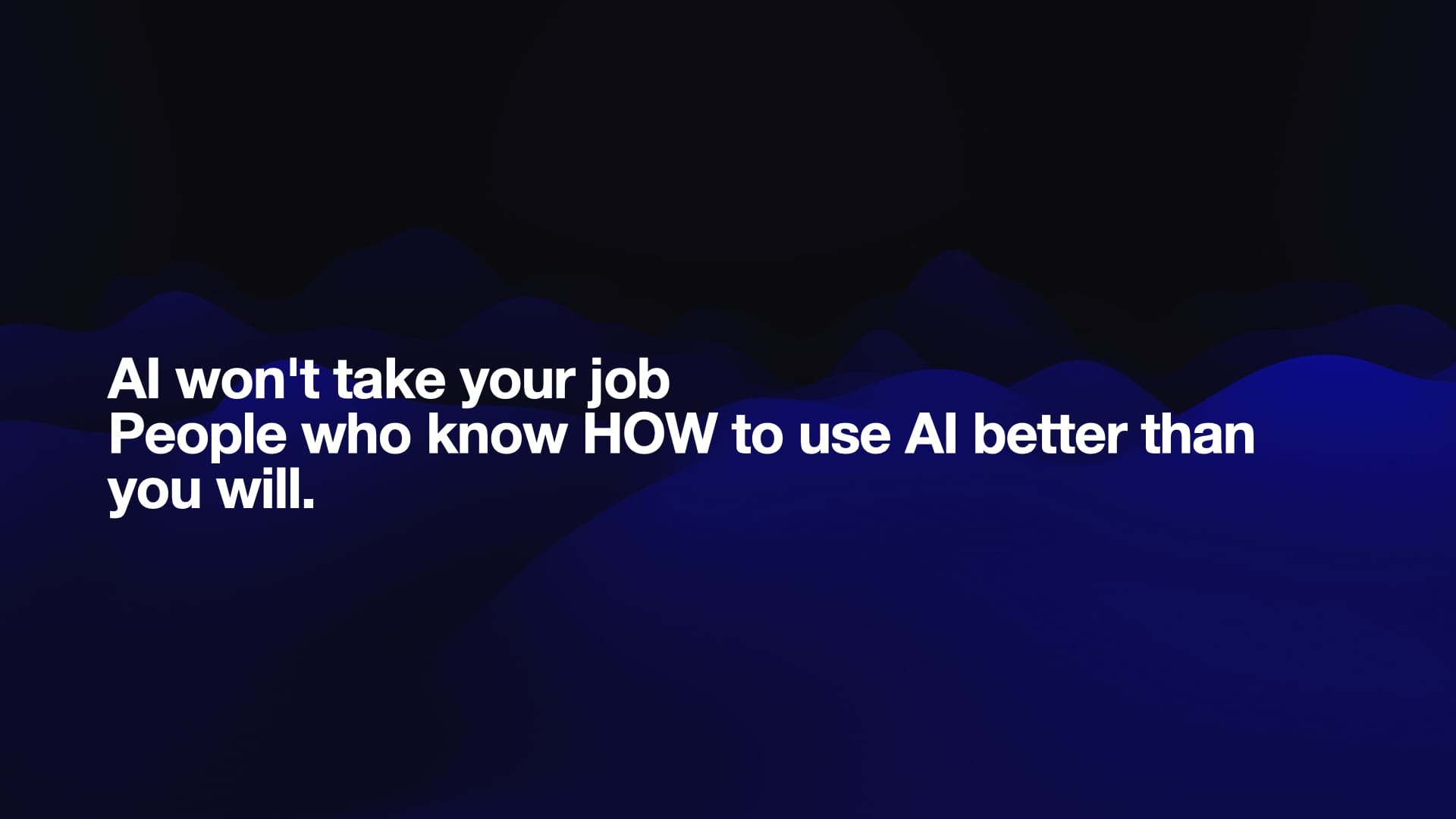
This is one of those quotes you see in every presentation these days.
There's some kind of truth in it, but I want to end on a more cheerful note.
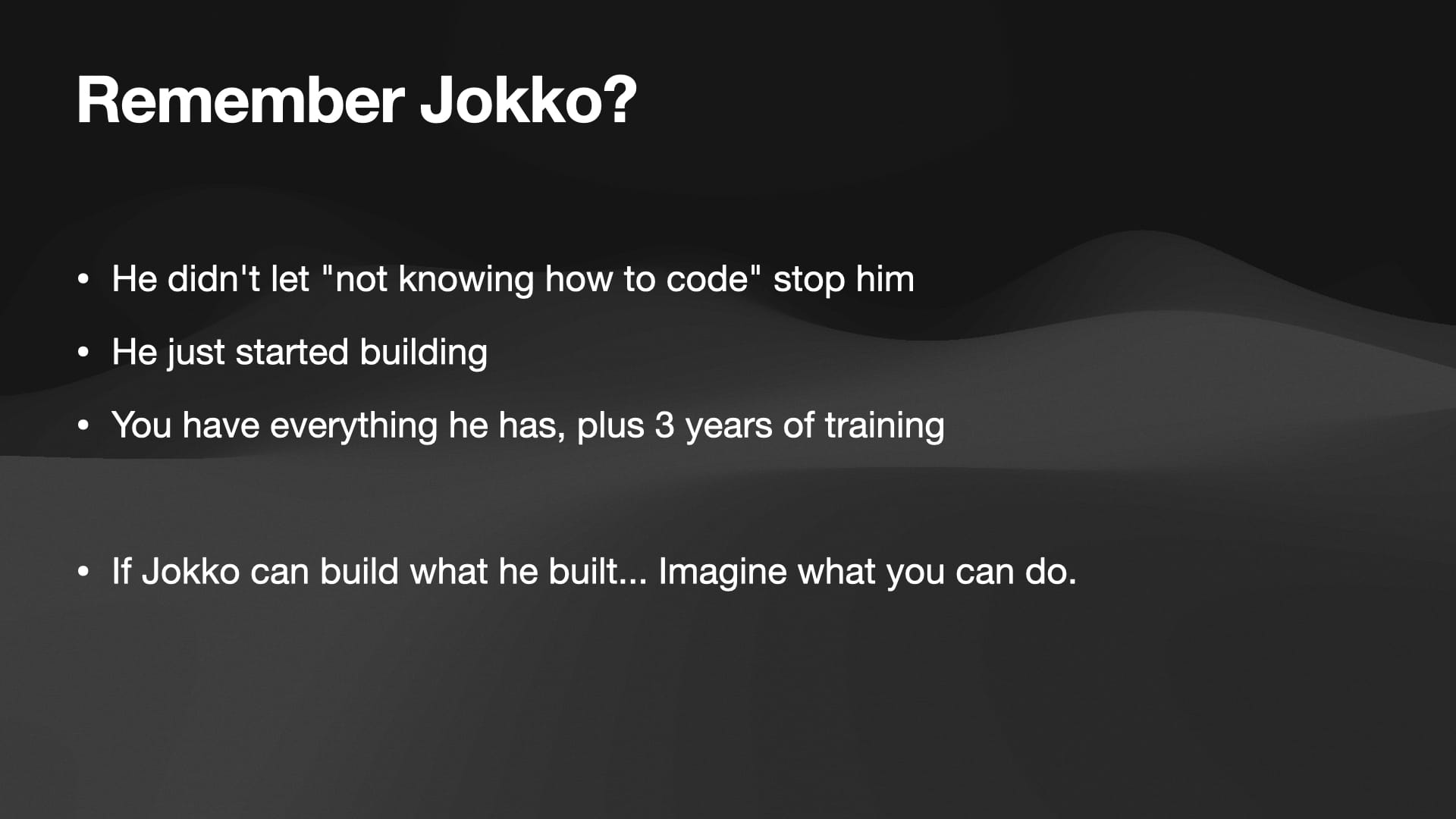
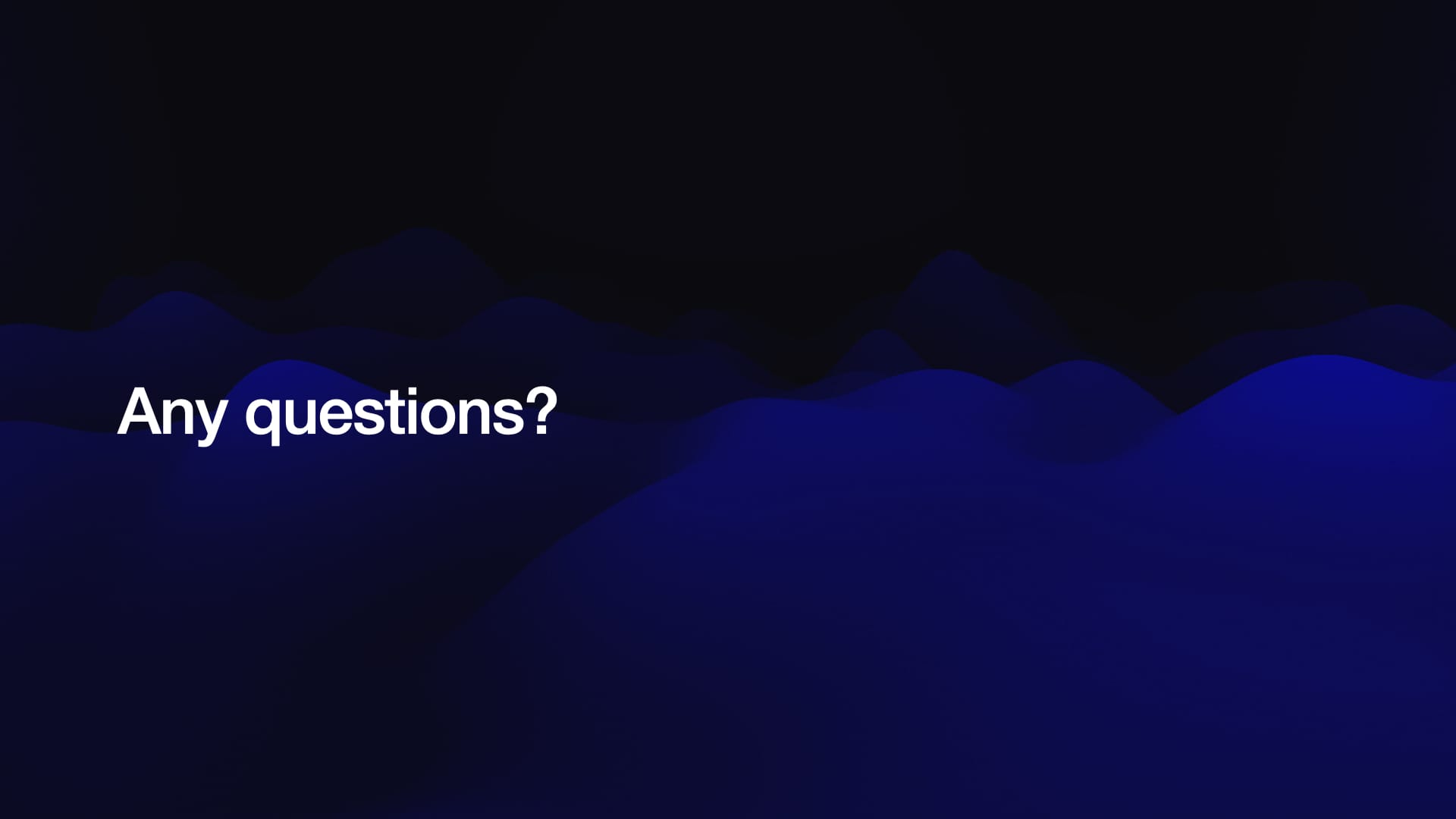
0 comments
No comments yet.